
TU/E Program & Fees 2025
Eindhoven University of Technology offers 53 courses across various disciplines for international students. The PG tuition fees for Indian students range from EUR 19300 ($22195) to EUR 21000 ($24150).
Top Courses Fees Comparison
The tuition fee 2024 for M.S Computer Science and Engineering at Eindhoven University of Technology was EUR 21000 ($24150). In 2023, the fee was EUR 16700 ($19205). The fee has increased by EUR 4300 ($4945).
Similarly, tuition fee for M.S Data Science and Entrepreneurship in 2024 was EUR 19300 ($22195), compared to EUR 16700 ($19205) in 2023, reflecting a rise of EUR 2600 ($2990).
The 2024 fee for M.S Architectural Urban Design and Engineering at Eindhoven University of Technology was EUR 19300 ($22195). In 2023, the fee was EUR 16700 ($19205). Compared to the previous year, fee has increased by EUR 2600 ($2990).
The cost of living for students at Eindhoven University of Technology in Eindhoven, Netherlands is around EUR 14800 ($17020)/year covering accommodation, food, transport, and personal expenses.
Popular Programs and Important Dates
| Program | Important Dates | Fees | Application Fees | Eligibility | Financial Aid |
|---|---|---|---|---|---|
Scholarship Application Deadline for September 2026 intake (1st Feb 2026) Application Deadline For September 2026 Intake (1st May 2026) | USD 24,150 /Yr EUR 21,000 /Yr | 100 | IELTS:- 6.5, TOEFL:- 90, CGPA:- 8.5 | ||
B.S Mechanical Engineering 3 years | USD 15,295 /Yr EUR 13,300 /Yr | - | - | - | |
M.S Automotive Technology 2 years | Scholarship Application Deadline for September 2026 intake (1st Feb 2026) Application Deadline For September 2026 Intake (1st May 2026) | USD 24,150 /Yr EUR 21,000 /Yr | 100 | IELTS:- 6.5, TOEFL:- 90, CGPA:- 8.5 | |
| USD 22,195 /Yr EUR 19,300 /Yr | - | - | - | ||
M.S Embedded Systems 2 years | Scholarship Application Deadline for September 2026 intake (1st Feb 2026) Application Deadline For September 2026 Intake (1st May 2026) | USD 24,150 /Yr EUR 21,000 /Yr | 100 | IELTS:- 6.5, TOEFL:- 90, CGPA:- 8.5 | |
| USD 15,295 /Yr EUR 13,300 /Yr | - | - | - | ||
| USD 15,295 /Yr EUR 13,300 /Yr | - | - | - | ||
M.S Chemical Engineering 2 years | Scholarship Application Deadline for September 2026 intake (1st Feb 2026) Application Deadline For September 2026 Intake (1st May 2026) | USD 24,150 /Yr EUR 21,000 /Yr | 100 | IELTS:- 6.5, TOEFL:- 90, CGPA:- 8.5 | |
| USD 15,295 /Yr EUR 13,300 /Yr | - | - | - | ||
B.S Electrical Engineering 3 years | USD 15,295 /Yr EUR 13,300 /Yr | - | - | - |
Do you think the Dates are wrong ? Report Here
Do you think the fees are wrong ? Report Here
Course Finder - Search from 50K+ courses
Popular Streams:
Eindhoven University of Technology Reviews
15 Reviews Found
Likes
- I would say the campus environment is very vibrant and I get to meet people from different diversities and cultures
- I feel like the professors are very approachable and helpful which makes it easier to communicate your doubts with them be yourself around them.
- The area of research is given a lot of emphasis and has several labs and practical facilities to support application oriented learning in my university
Dislikes
- Sometimes the course workload gets quite heavy, especially when multiple deadlines fall in the same week, which can be a bit overwhelming
- Some courses such as advanced algorithms are highly theoretical and could include more practical or hands-on elements to make the learning experience even better.
- The cost of university oriented housing is quite high and could be reduced to make it affordable for students.
Course Curriculum
- Initially it took me some time to adapt to the course curriculum, as it was designed for a quarter system. It was a mix of both theoretical and practical at the same time. The most positive aspect was that I got used to completing my assignments, which were purely practical and had to apply my learning to solve each problem. This helped improve my problem-solving skills.
- At the same time, the quarter system made life difficult, as it gave no time to focus on extracurricular activities. Typically, 2 classes are scheduled per week for one course and timing varies between 8:45 am and 3:30 pm, with 3:30 pm being the last class. Average number of students is between 30-60 with Indian students being limited to between 5 and 10.
Fees
-
The fee for the first year includes:
- Fee for financial means—which the university will transfer to your account once you have opened a bank account here—which sums up to 12000 euros
- Tuition fee—This amounts to about 19,500 euros for one academic year and increases slightly every year.
- For the second year:
- You will have to take care of your financial funds for living, as the university will not collect it beforehand and transfer it to you. It can be paid in a monthly manner or in a one-time transaction. It's up to you to decide which means of payment you want to choose.
- A breakdown of my monthly expenses include
- Rent – 650 euros
- Insurance and bike maintenance—50euros
- Groceries—100euros
- Miscellaneous - 100 euros
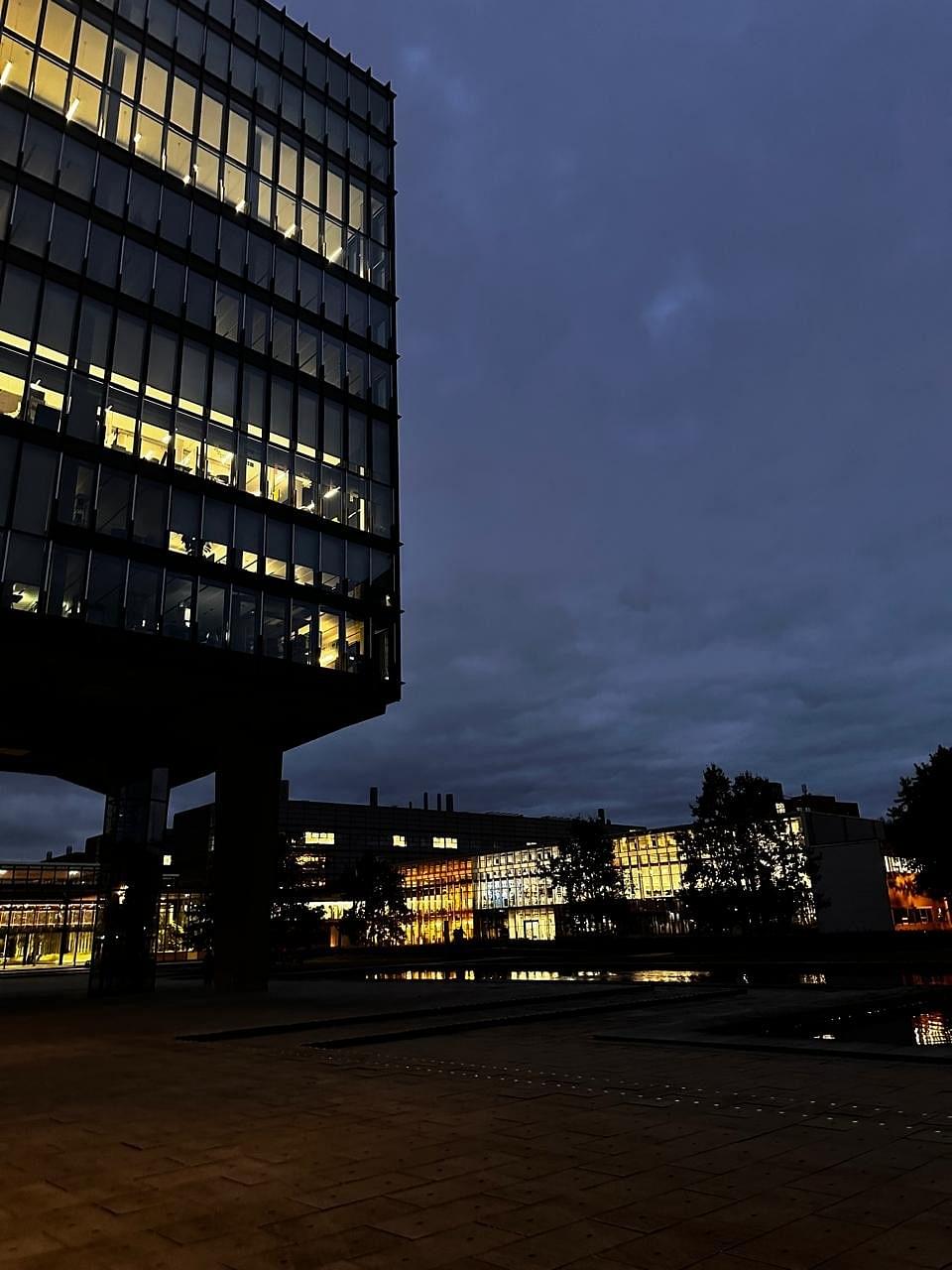
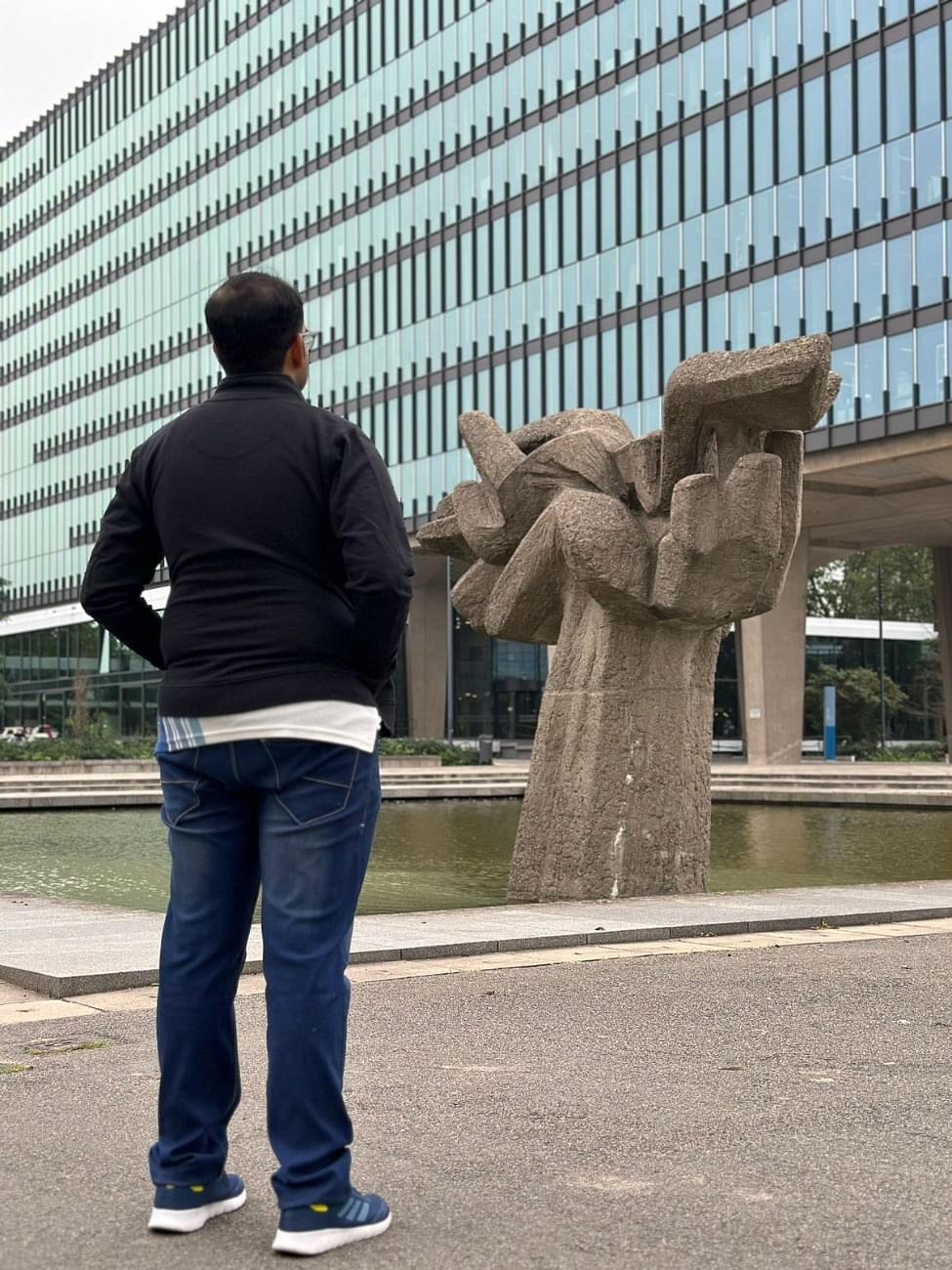
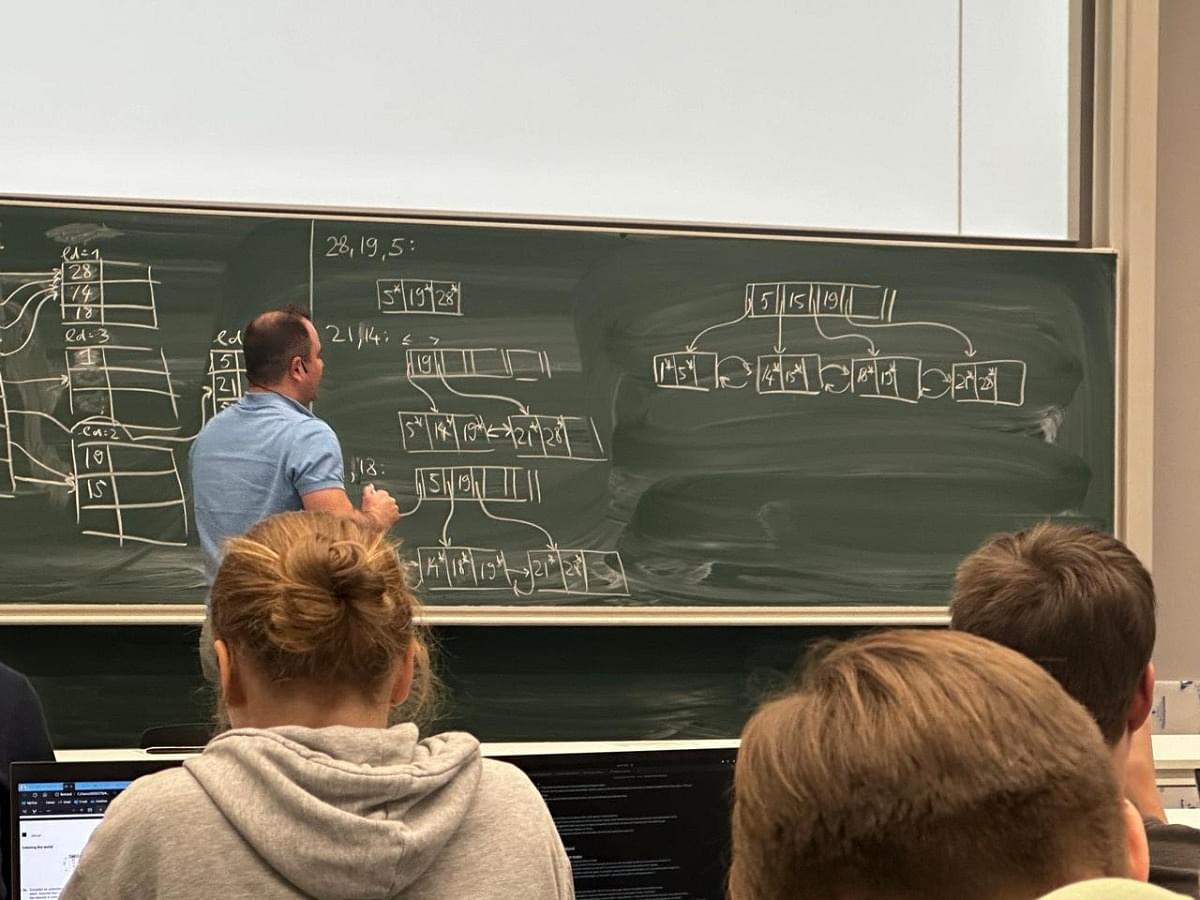
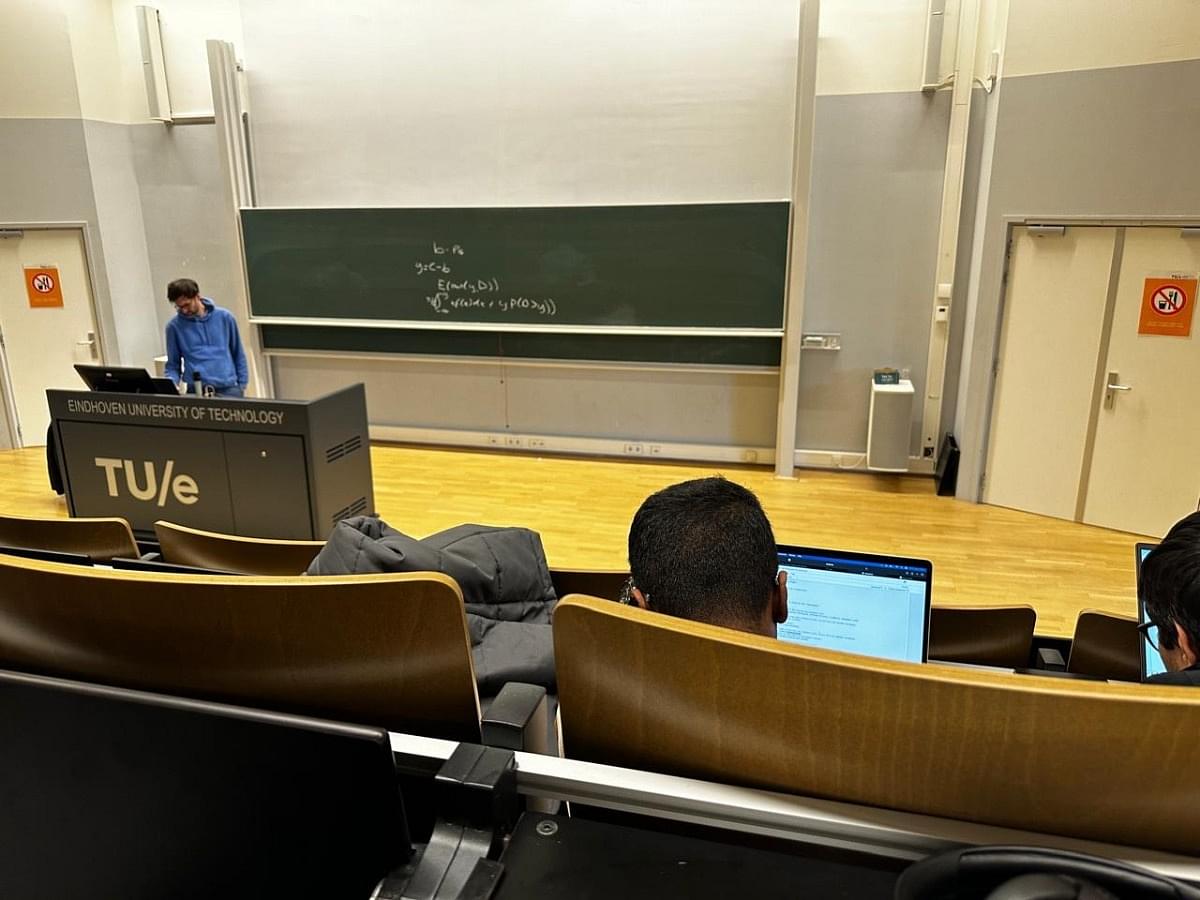
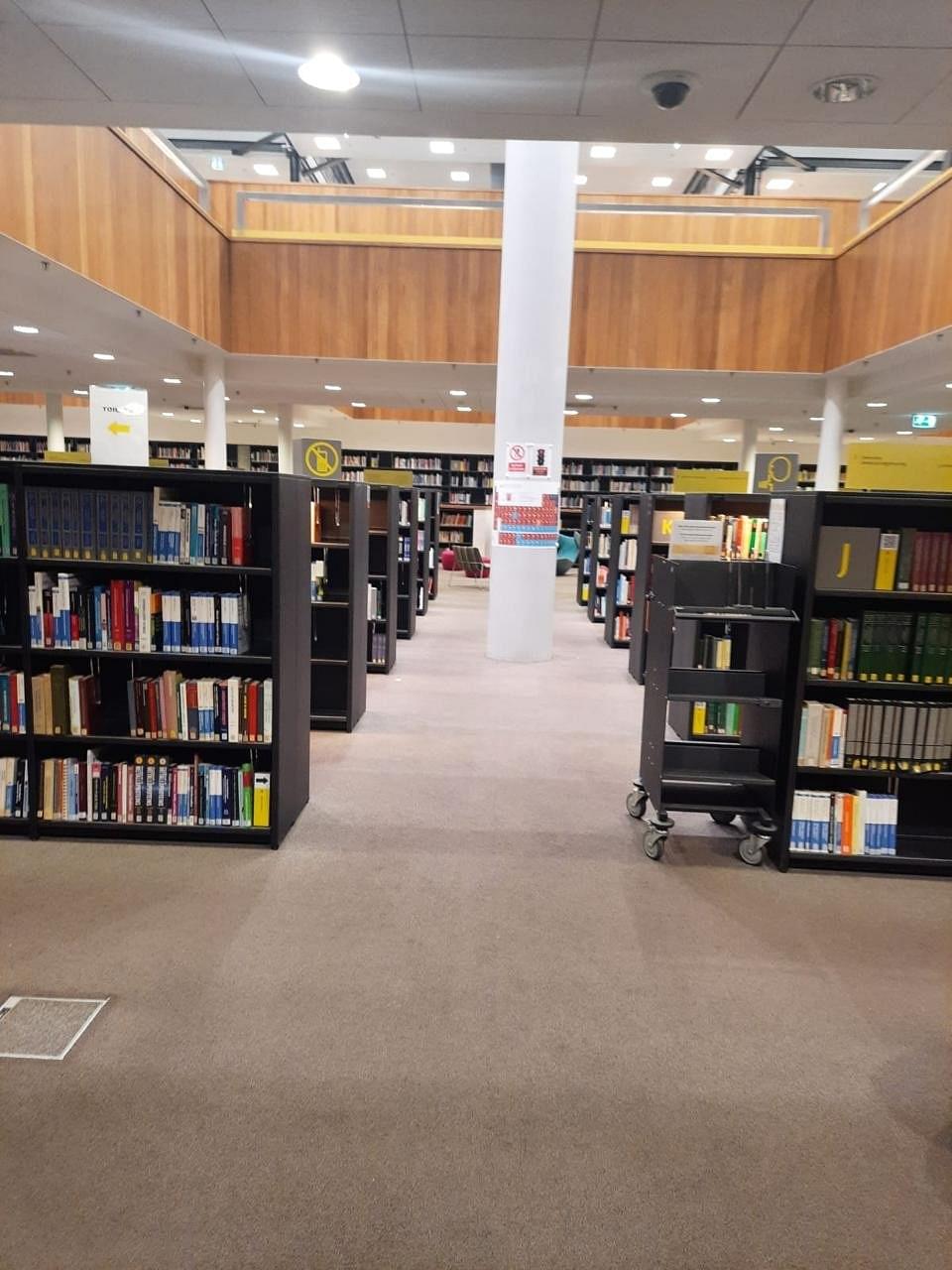
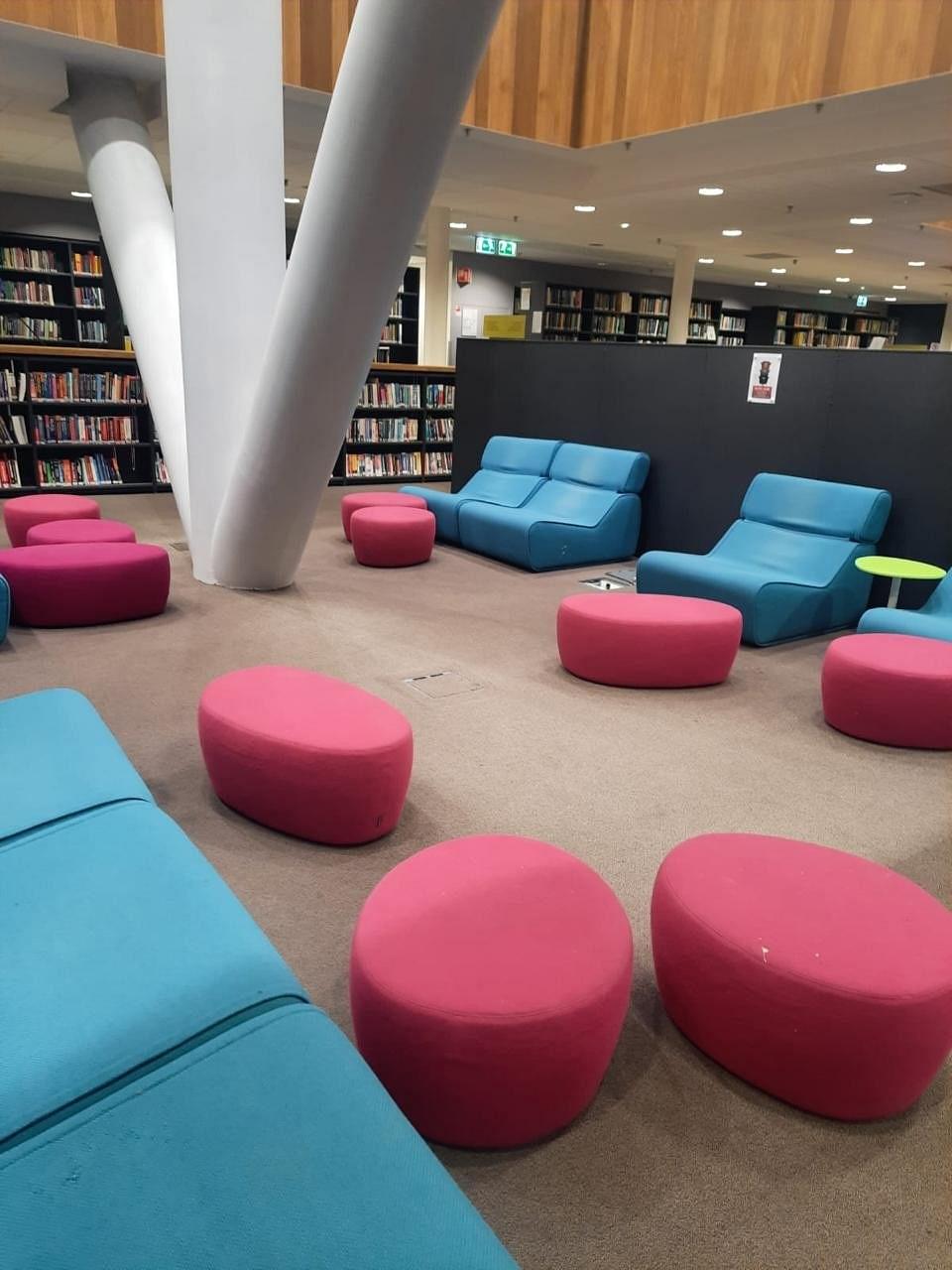
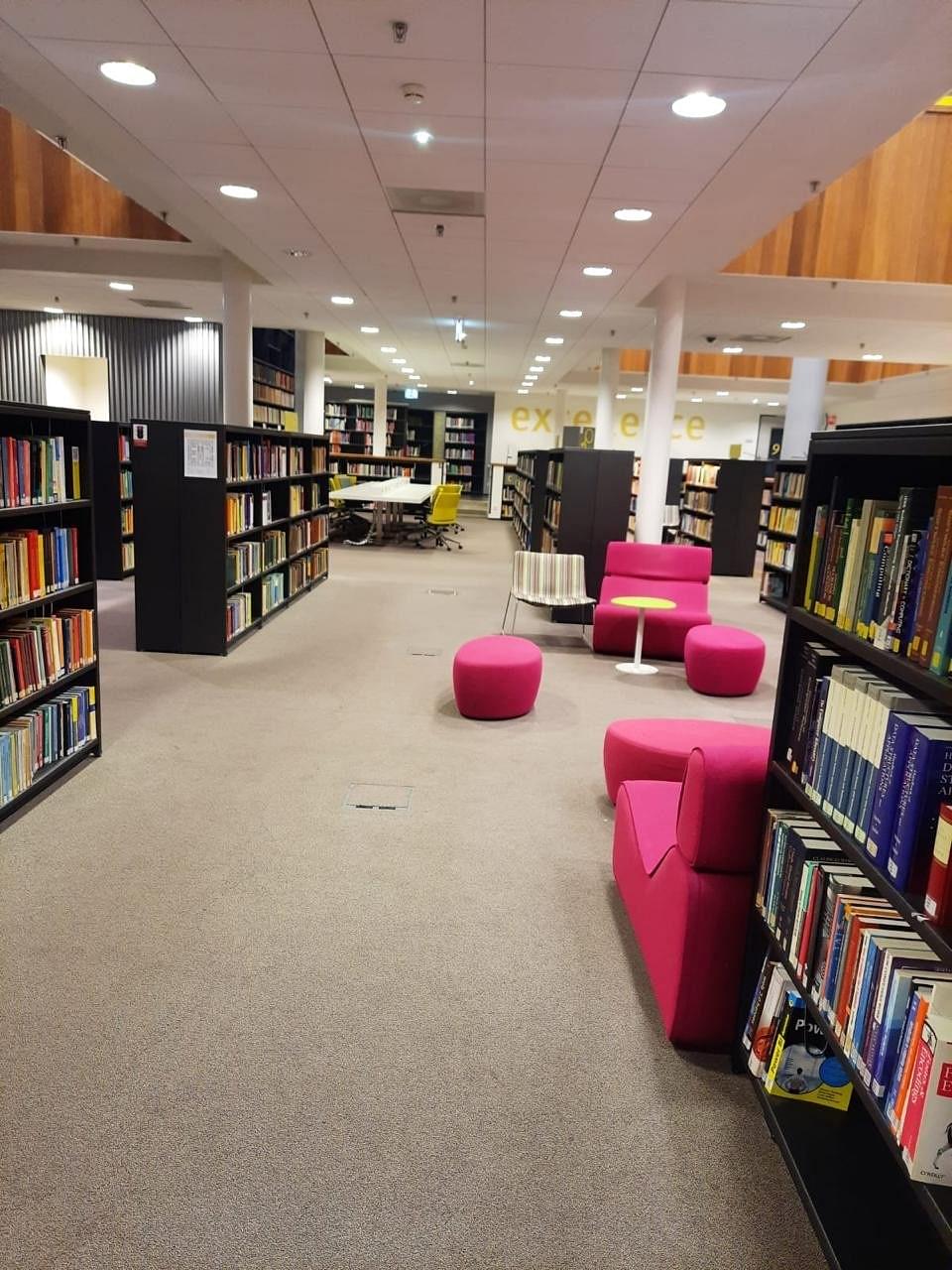
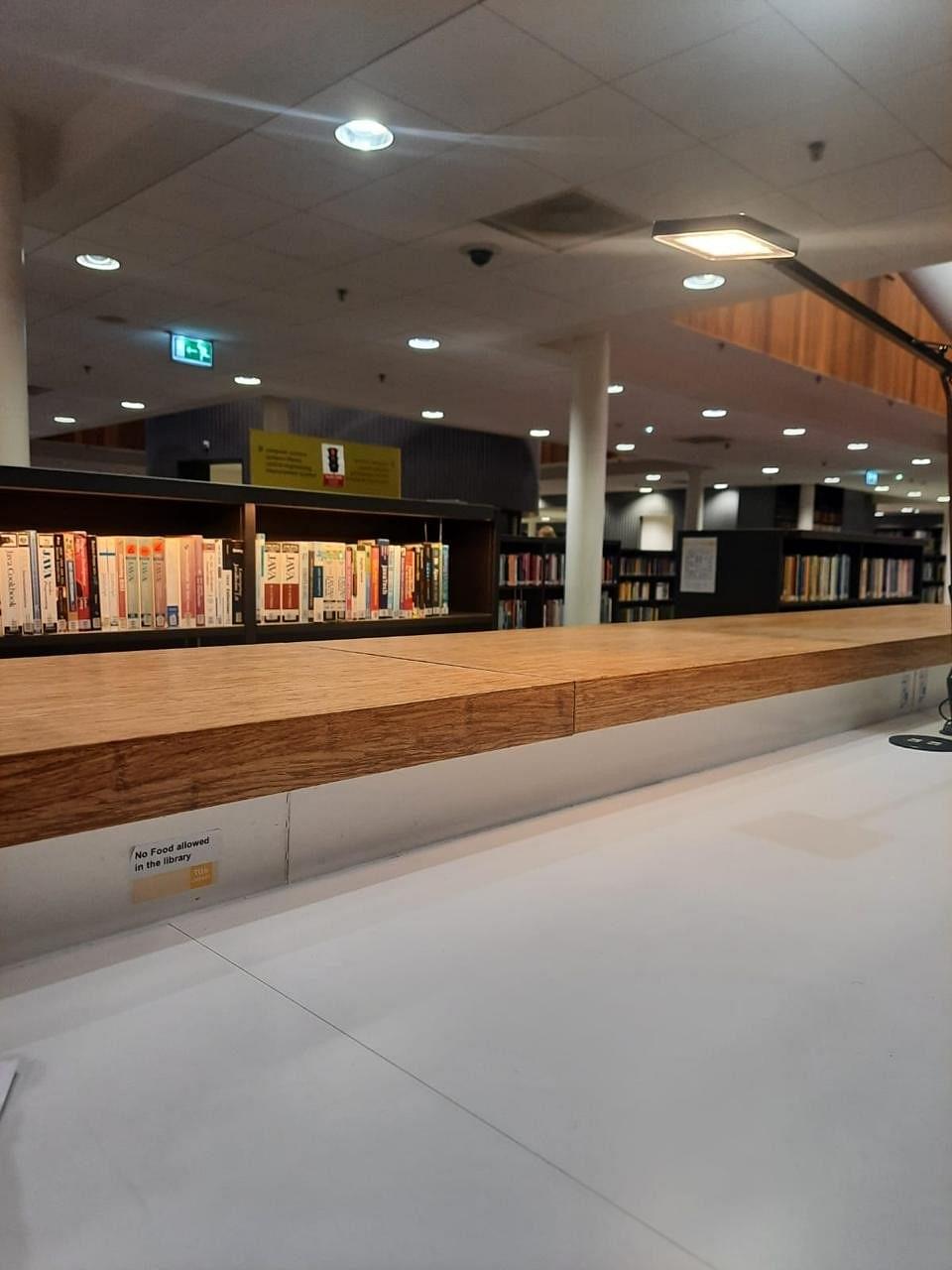
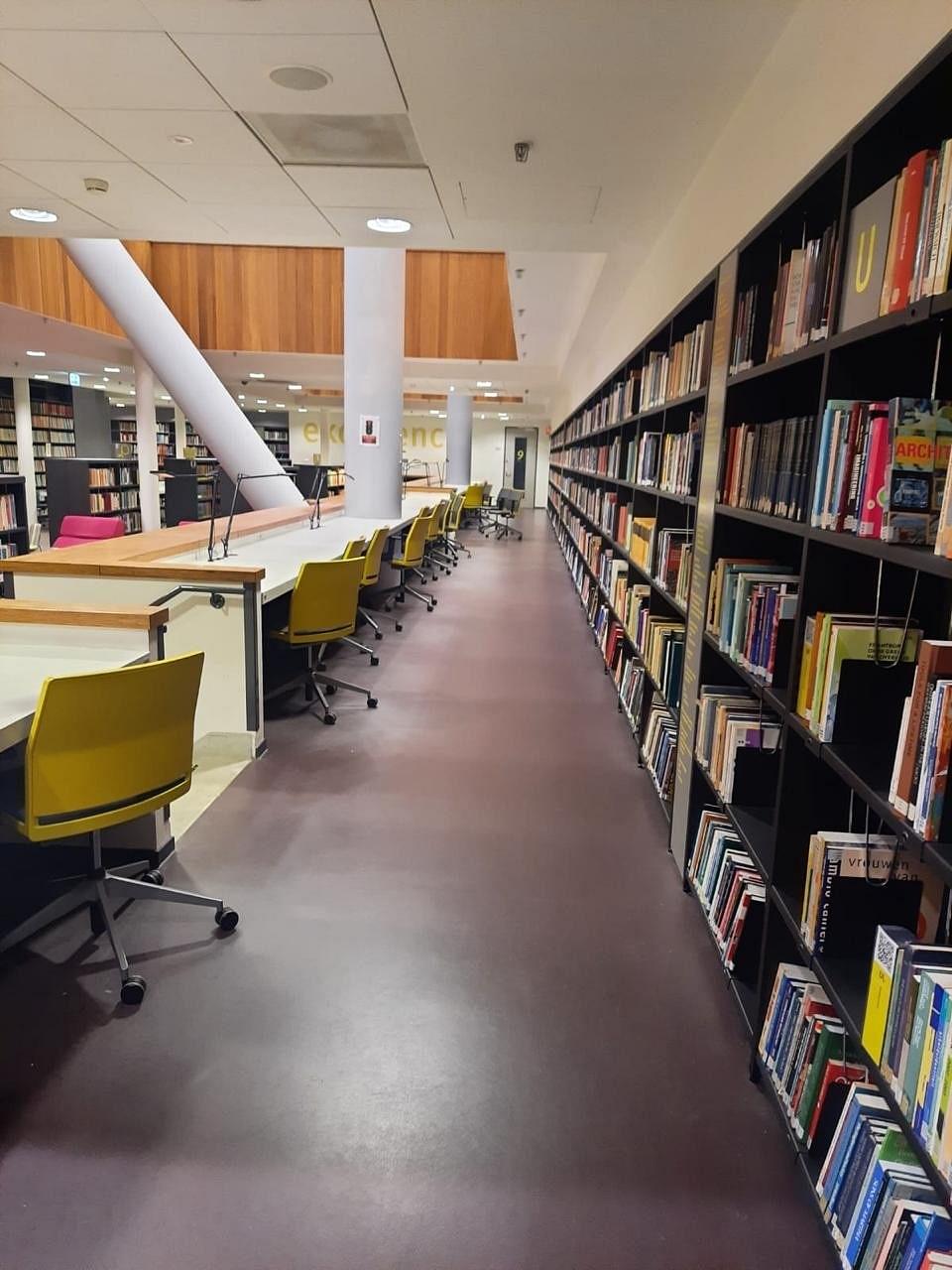
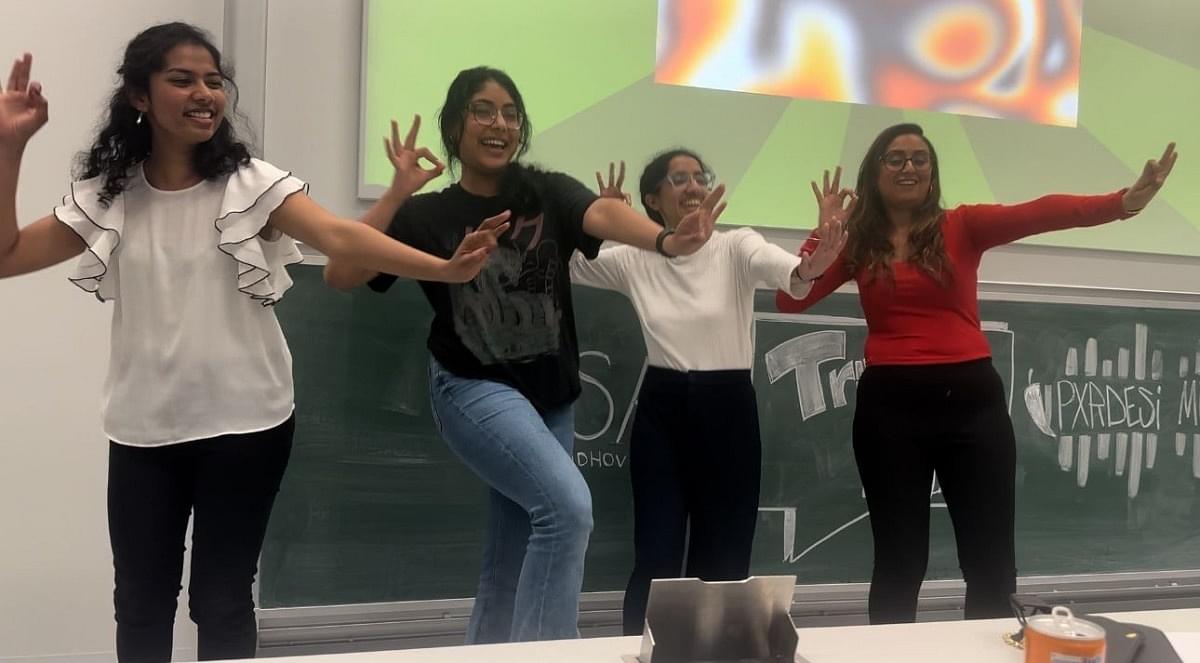
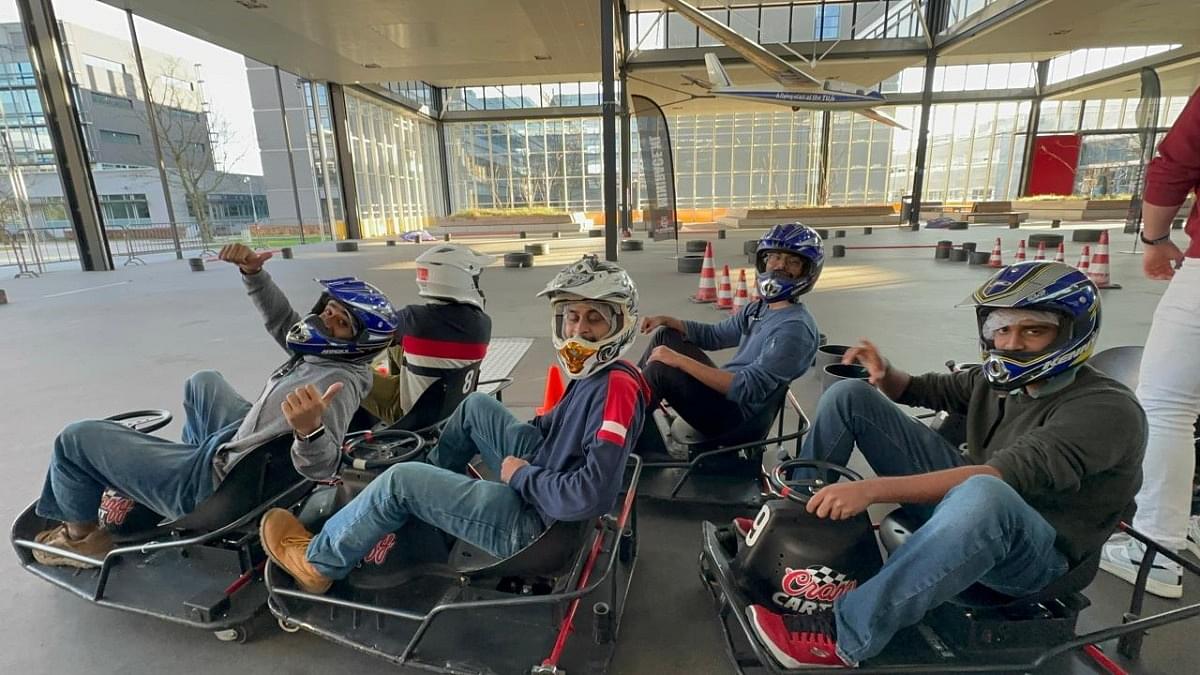
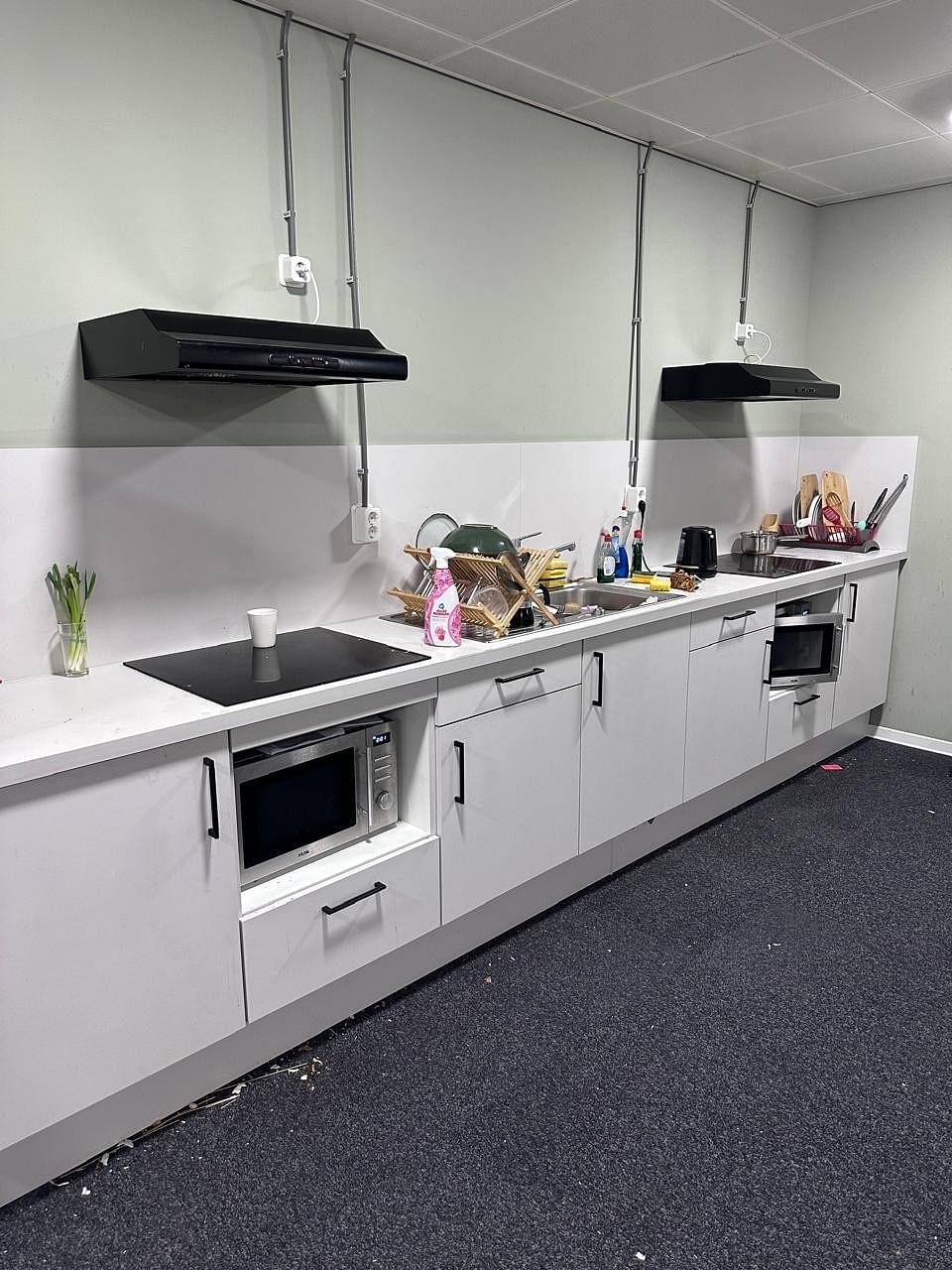
Likes
- Hands on approach - Based on the courses that you select, you will also have laboratory experiments/case studies where you can explore all the possibilities to provide a solution. University appreciates genuine solutions and does not always expect you to provide the right solution for those problems.
- Open choice for projects - You will have your own freedom for choosing the projects for courses/internship/thesis. One of the important things in an internship/thesis project is that you will also have the freedom to shape/change your problem statement of the project as you make progress.
- Mentor/Academic advisors - In continuation of the previous point. It is common to get confused in the selection of projects, that's where you have sought the help of academic advisors, who can guide you to the right person and offer support in case you are having some academic performance issues. Choosing a professor mentor in the field that you would like to work is an added plus. He/She will be able to make arrangements for any projects with industry people/university candidates. University makes sure you have both the connection within the first two months of your academic year.
Dislikes
- Too much self study - Sometimes it feels like you have to handle many things and bot on your own for so much during the initial days. The university doesn't give you time to adapt to their educational style and will demand more.
- Scheduling - There are many things that can alter the regular flow of the course schedule, like frequent train issues, protests, and hacking. These events mostly will bother your regular schedule and rescheduling will kind of be a mess.
- Teamwork - There are also some effects due to the above point in case if you do have a course related to teamwork/group projects. In some cases the train strikes will cause your teammates to be unable to travel so you'll have to do their work, although if they are present via Teams. Group project demands contribution from each person and proper workload is not divided, it can also cause unnecessary stress and the university does not help much in this case.
Course Curriculum
- Course curriculum – It is finely balanced in terms of theory and practice as well. There is also a catch, like it depends on the course/subjects that you choose in the first year. Sometimes it might be entirely practically orientated or theory orientated.
- Courses make you well equipped with the basic knowledge for you to approach the industry problem. So you don't need to worry much while entering into the work life.
- Usually it depends on the number of courses that you enrol yourself in per quartile. Most people will choose 2–3 courses per quartile. So the class timing would be varying, like from 8:45 to 12:30 PM or from 1:30 until 5:15 PM for 3 to 4 days max per week. It is also not mandatory for you to attend class in person. Some courses have recorded videos so that you can watch the lectures at your convenience.
- The average number of students is not something to be predicted and giving an estimated answer is really difficult since it varies based on the course. Let's say, like, you will have the option to select 1 out of 4 courses.
- Maybe 8 students would have enrolled for my master's programme. Also for each course, it would be like 1 or 2.
Fees
- Per year Tuition fees (vary) are 19,700 EUR, and Accommodation & other expenses (monthly) - 850 EUR. The accommodation fees can vary, but due to the scarcity of houses, they are more of the same price.
- Fees can be paid for a split of 10 months, per quartile (2 months) or all at once. It depends on which mode you want to pay. Be aware of the tax and conversion charges since it will also alter the total sum that you will pay.
- Expense (month) Rent – 650 EUR, food – 100 EUR, bike – 10 EUR, additional expense – remaining amount (insurance, recharge).
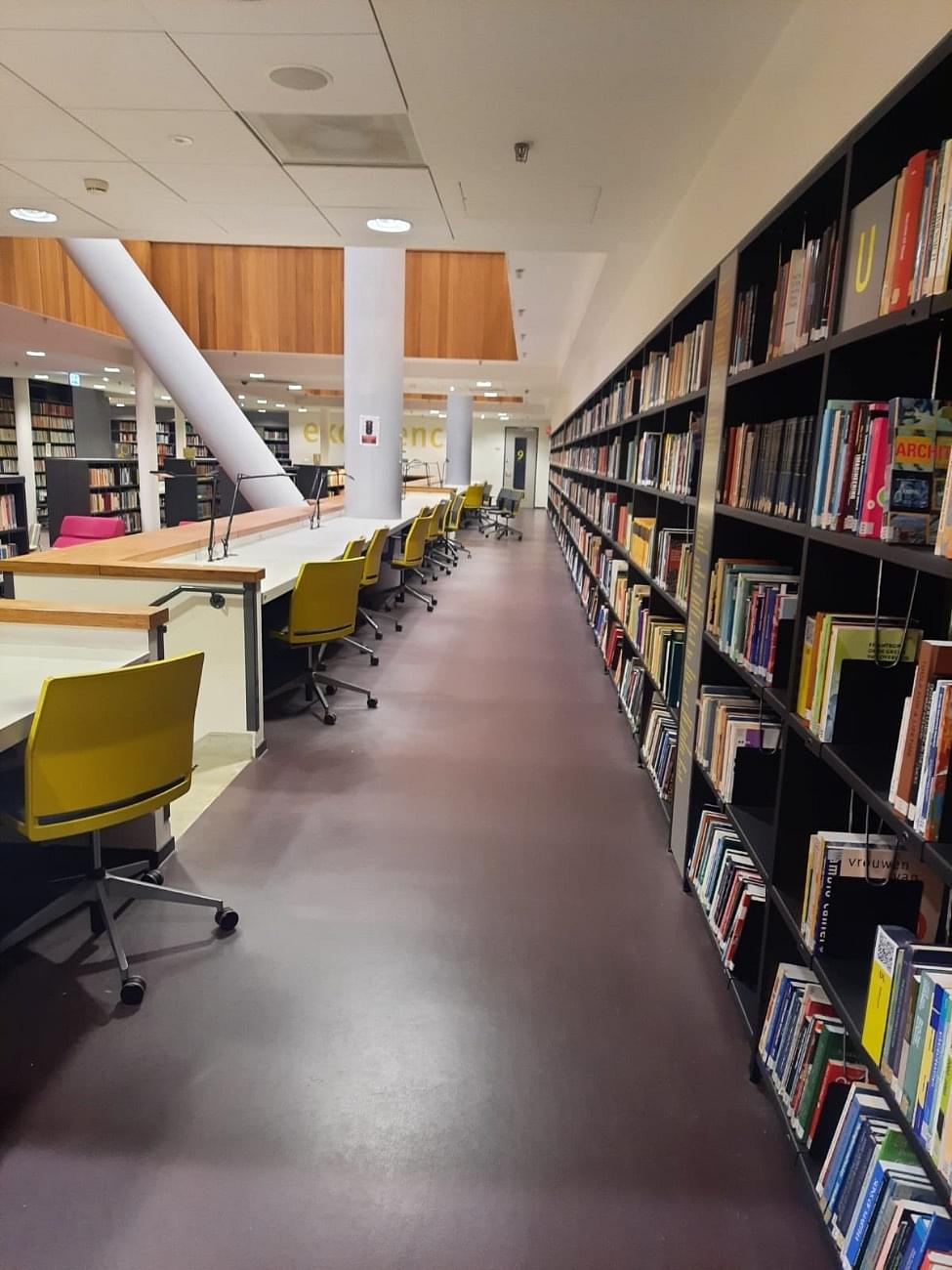
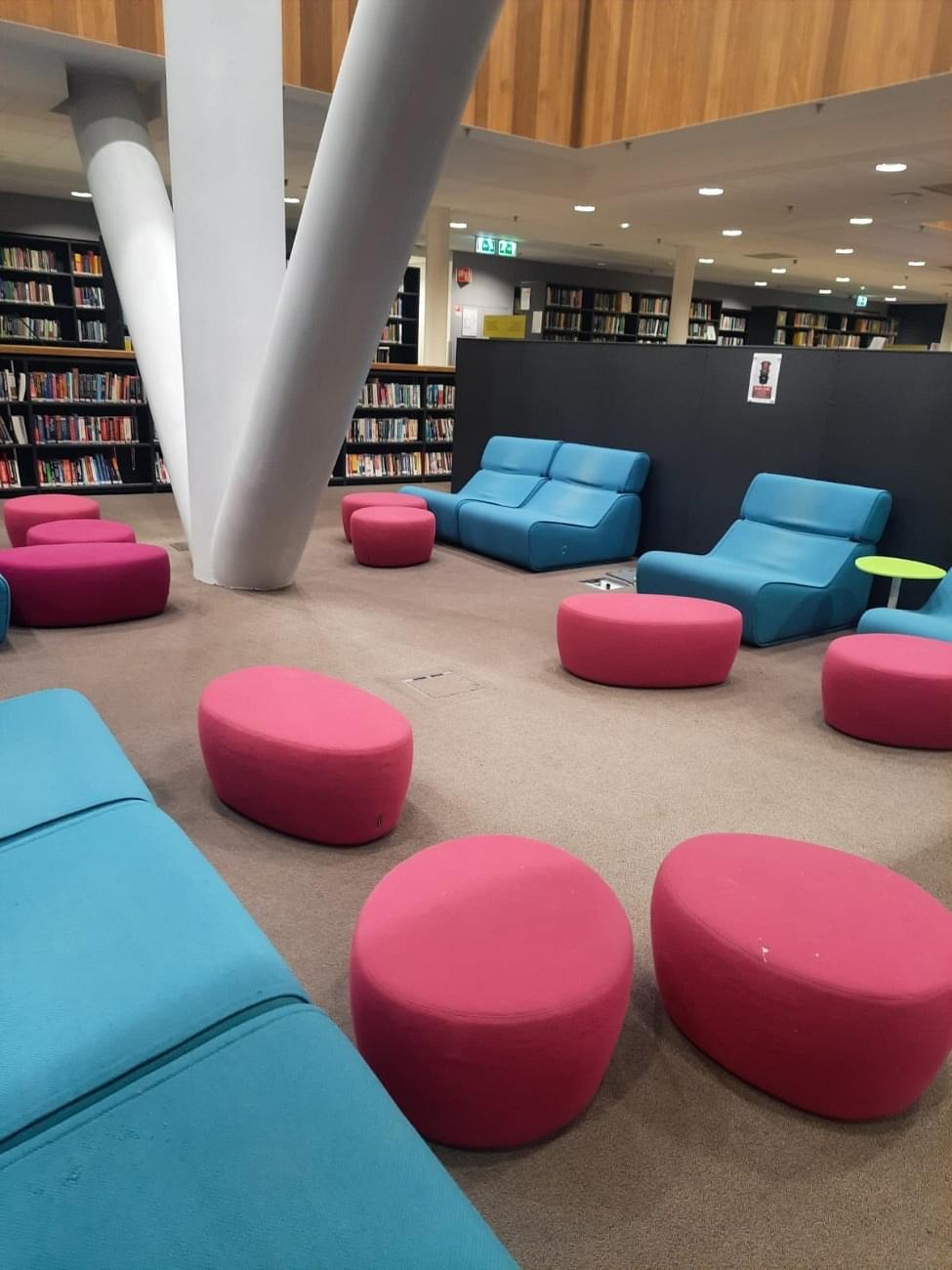
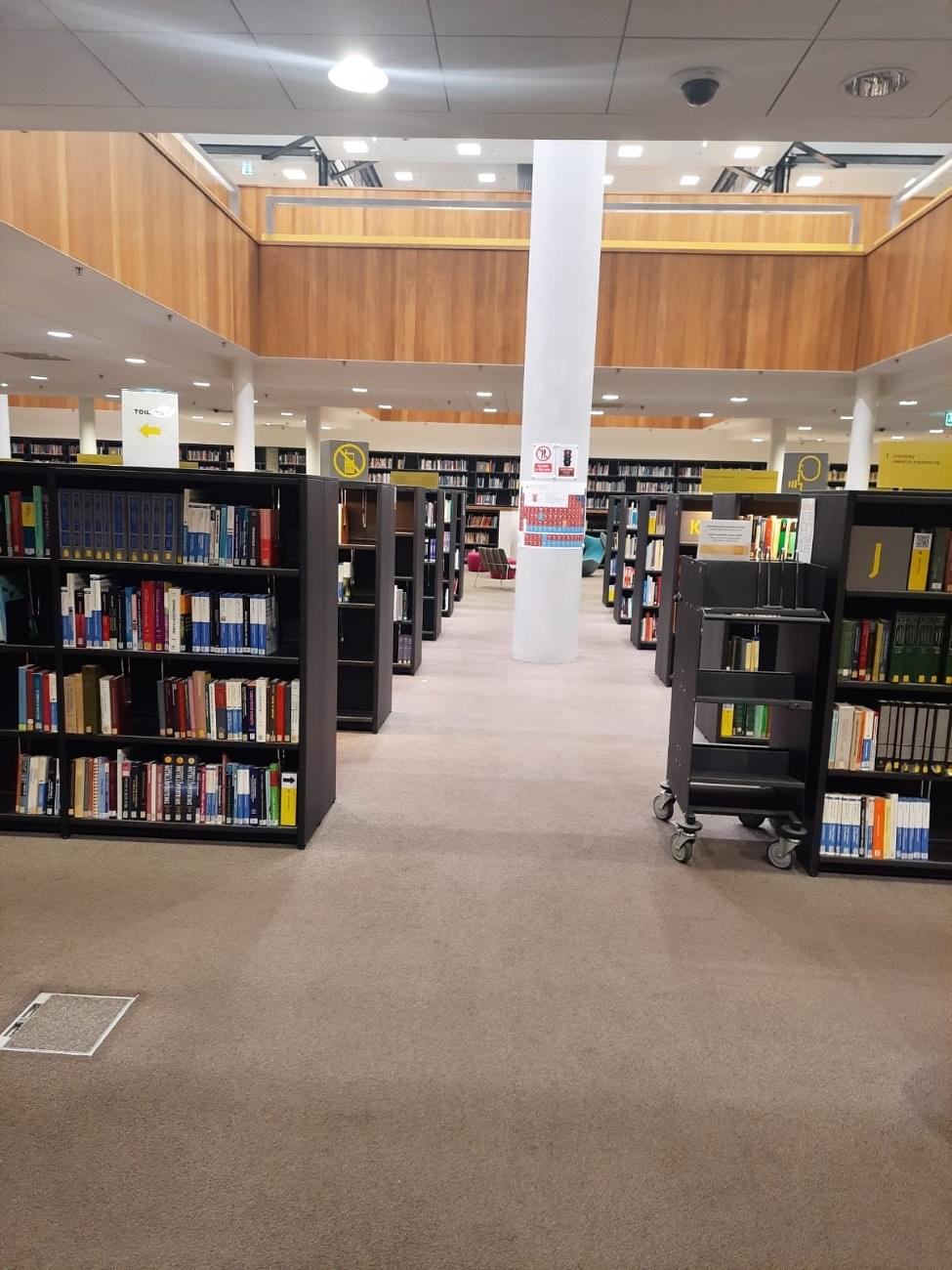

Likes
- Balance between theory and practical projects
- Group projects with at least 5 members to promote real life teams
- Interdisciplinary projects between mechanical, chemical, sustainability engineers
Dislikes
- Crowded classes as the auditorium only had about 100 seats or so
- Expensive tuition fees for an international students
- Limited course availability for some electives (overall good)
Course Curriculum
- I would rate my course curriculum as difficult but not impossible. There were 80 credits or so from 180 that were theory; the rest were either practical projects or electives, for which you can choose to have practical projects or theory. This was the most positive aspect, as you could shape what kind of engineer you wanted to become from electives. However, there were some courses with limited seats; therefore, you had to think long ahead to apply to them quickly.
- There were about 10-15 indian students in my degree out of about 150 international students. Total we were about 300 mechanical engineering students. The classes usually started about 8:45 AM and lasted until 5 for some. Maximum lecture was about 3 hours.
Fees
- The tuition fees are a big sum for an international student, which can be paid in 1 full go or in 10 instalments from September to May. However, along with tuition fees, you also need to show that you can stay here with a financial statement as well, which states that you need to have at least 11,000 euros or so per year as living costs.
- The housing situation is quite bad so do expect higher expenses than when i was here. The estimated rent is around >700 for a room and a person should be fine with living on 150 euros for food per month. Bike is the best way of transportation for speed and cost. However, if you live in another city, do expect high public transportation costs.
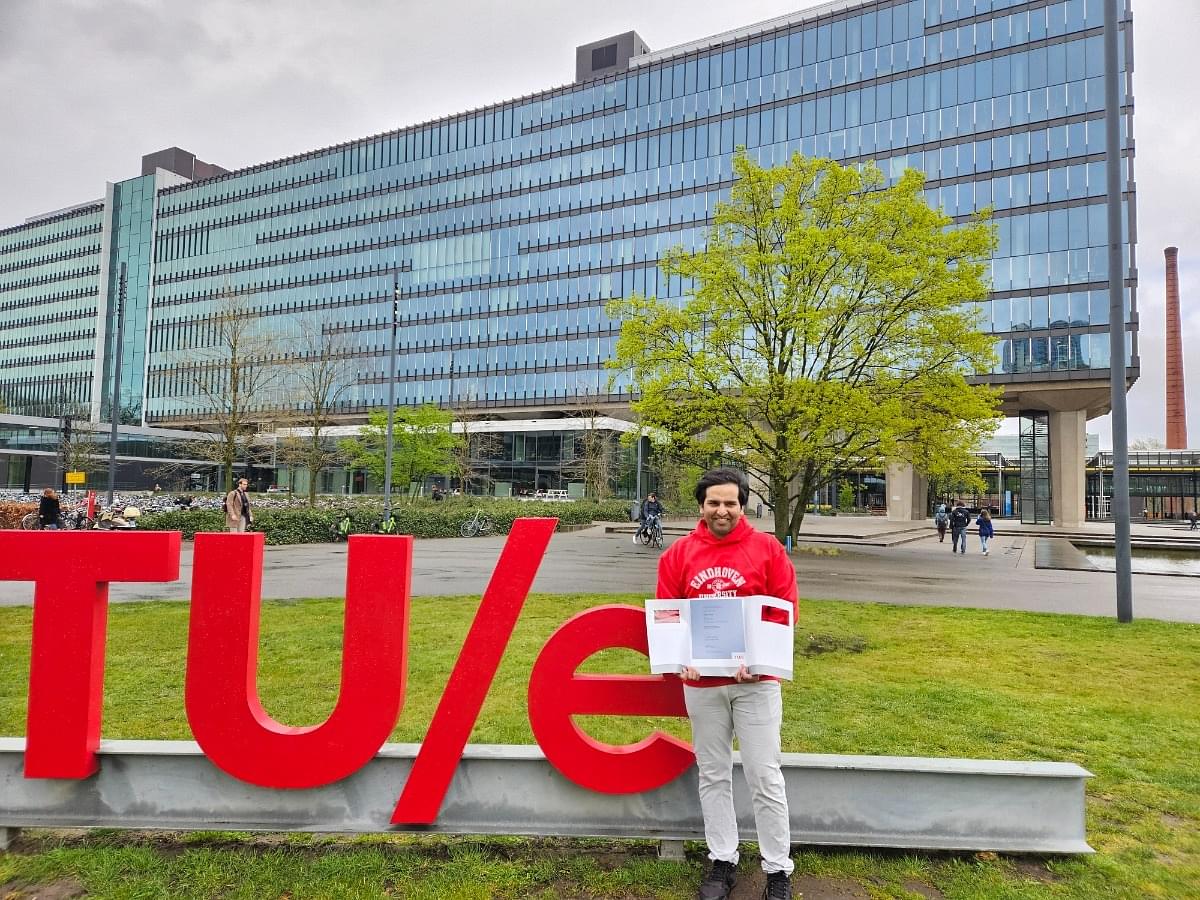
Likes
- Lot of different specializations to choose from.
- The proximity of the university to Eindhoven's automotive high-tech campus (in Helmond) gives great exposure and opportunity.
- Extremely talented and qualified faculty.
Dislikes
- Expensive when compared to EU citizens. Non EU citizens pay 17000-20000 euros p.a. whereas EU citizens only pay 2000 euros p.a.
- Some specialization groups like to extend the thesis research for a long time leading to additional expenses for students. But I think now there is a cap on how long the thesis can continue.
- Very limited student housing options. The two student dormitories in campus have a combined capacity to house around 800 students, whereas the total university strength is > 10000.
Course Curriculum
- The course curriculum is definitely on the harder side. At least 2 hours of self-study are required almost every day in order to score well. The course is almost completely theoretical. However, there are very few electives that have a few practical aspects.
- The positive aspect is that the curriculum is very up-to-date and cutting-edge. There are a lot of high-tech labs and facilities for research during your thesis/internship. The availability of a variety of specialisations to choose from also helps students choose a curriculum that they really enjoy.
- The negative aspect is that there is not a lot of time for a student. Daily assignments, weekly presentations and deliverables, weekly quizzes and seminars and large homework all squeezed within 2 months.
- A typical day will have 2-3 subjects in a day, lasting between 4 and 6 hours. Some subjects also require a "guided self-study session" which lasts for 2 hrs and takes the total to 8 hrs. This is scheduled for about 4 days in a week. All the classes take place between 8 am and 5 pm. Though students often stay back to work on group assignments/projects till late in the evening.
- There are on average 50-60 students per class. My class had around 30 Indians.
Fees
- For the academic years 2020-2021 and 2021-2022, the fee was 17000 euros p.a. There was an option to either pay the full amount or pay in monthly instalments.
- The living expenses would amount to about 10000-12000 euros p.a. If someone manages to get a room in student dormitories, then the rent is around 250-450 p.m. In case a student could only find private housing outside, then that will easily be between 600-1000 euros p.m.
- Groceries would be around 200 euros p.m. For transportation, most people use a cycle, which secondhand should cost around 100 euros.
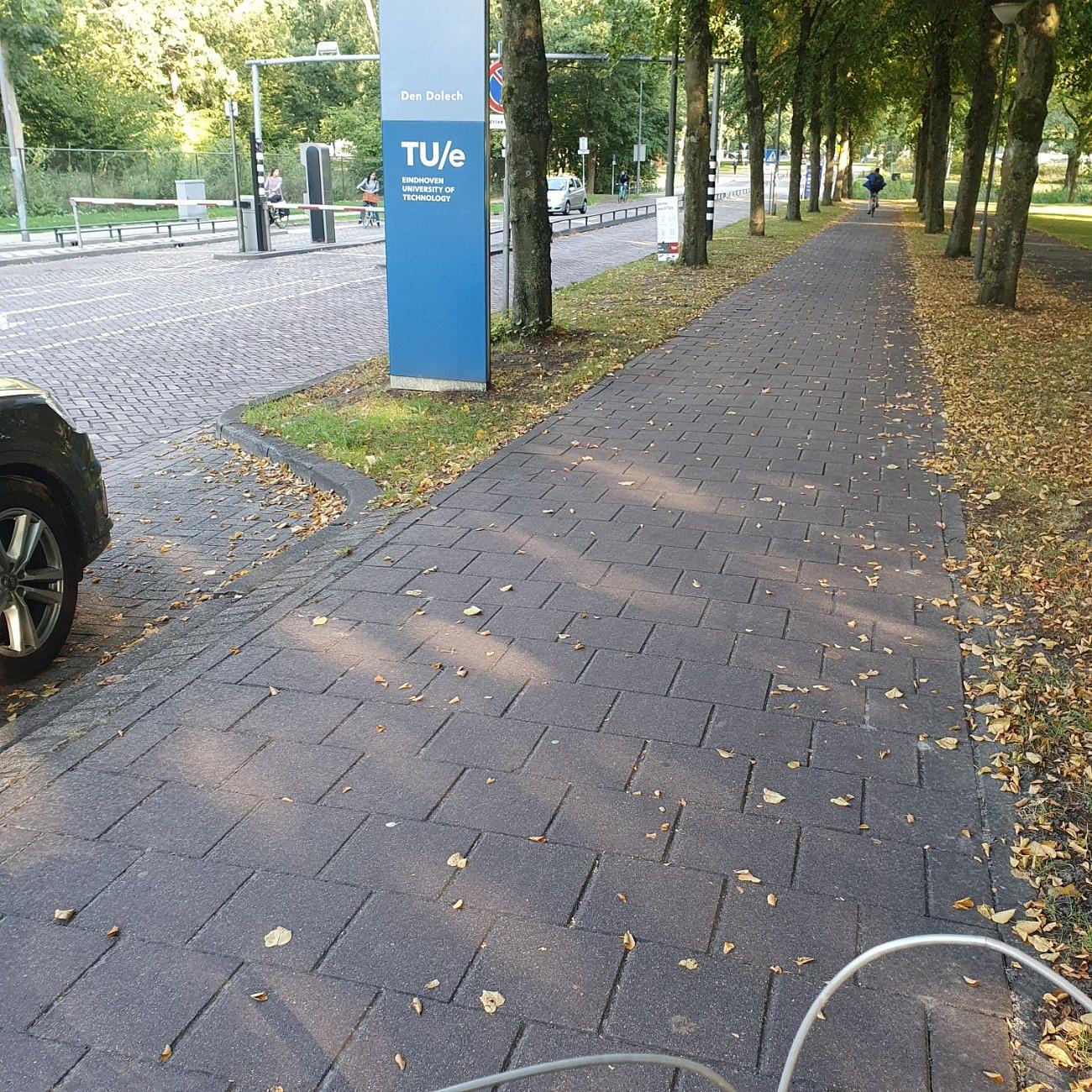
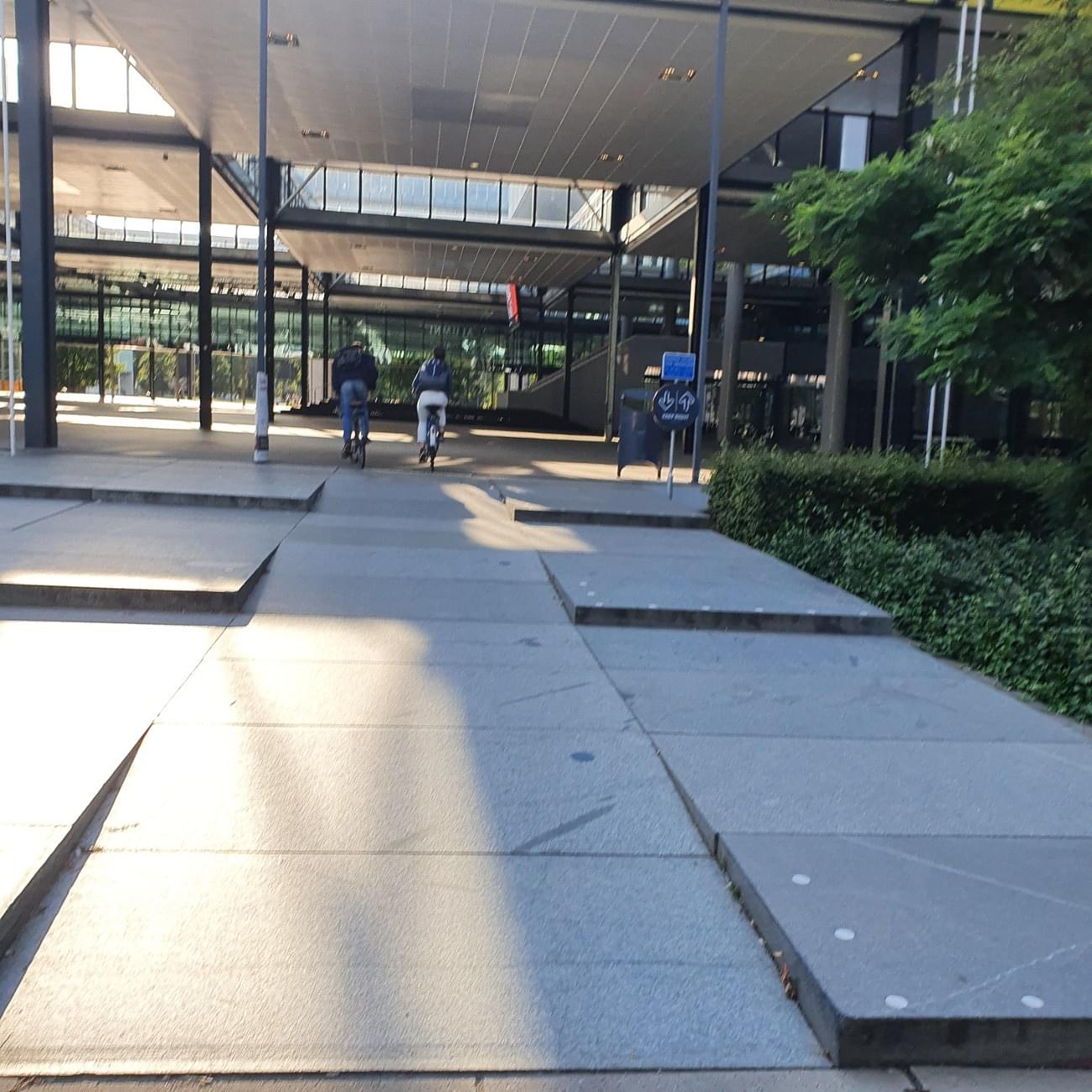
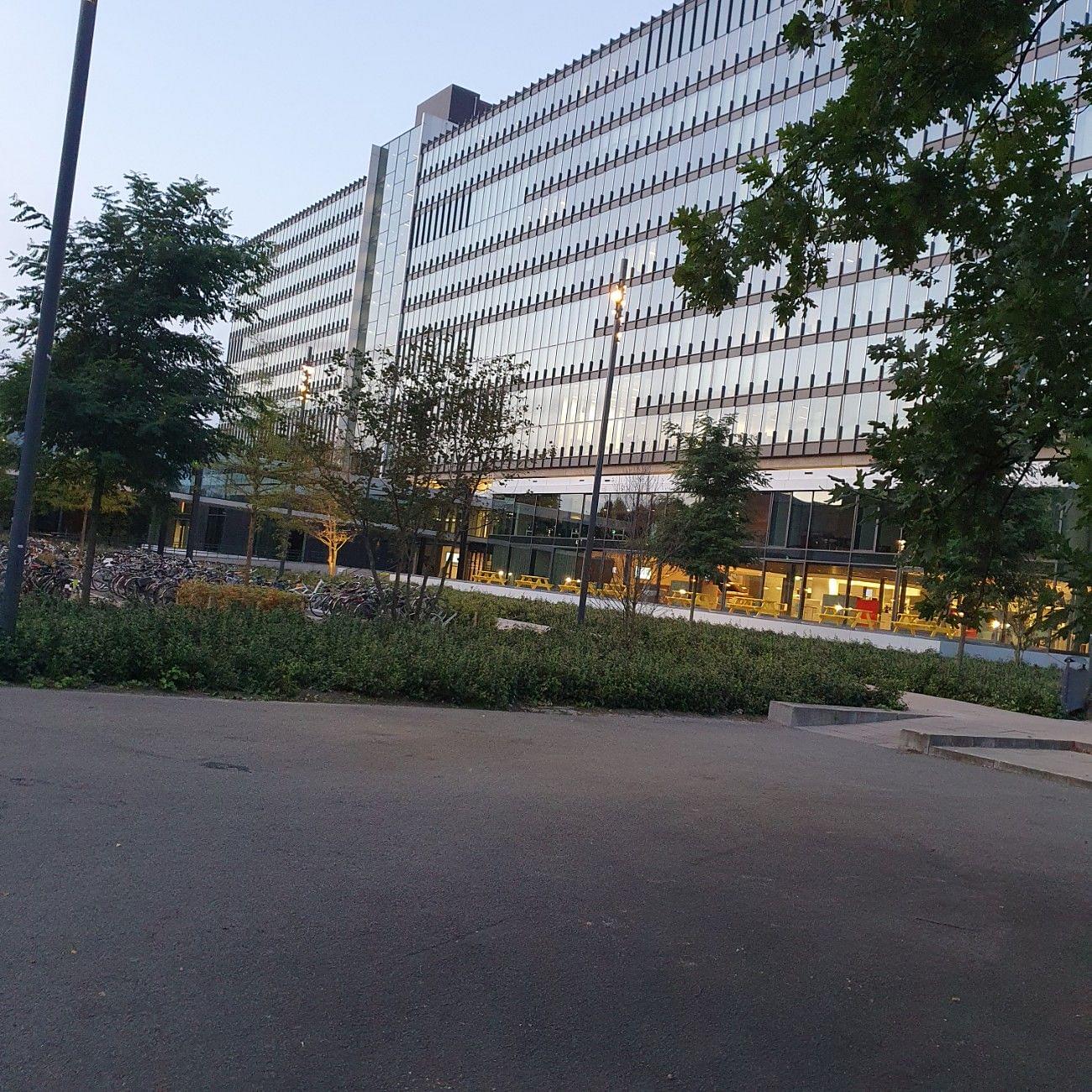
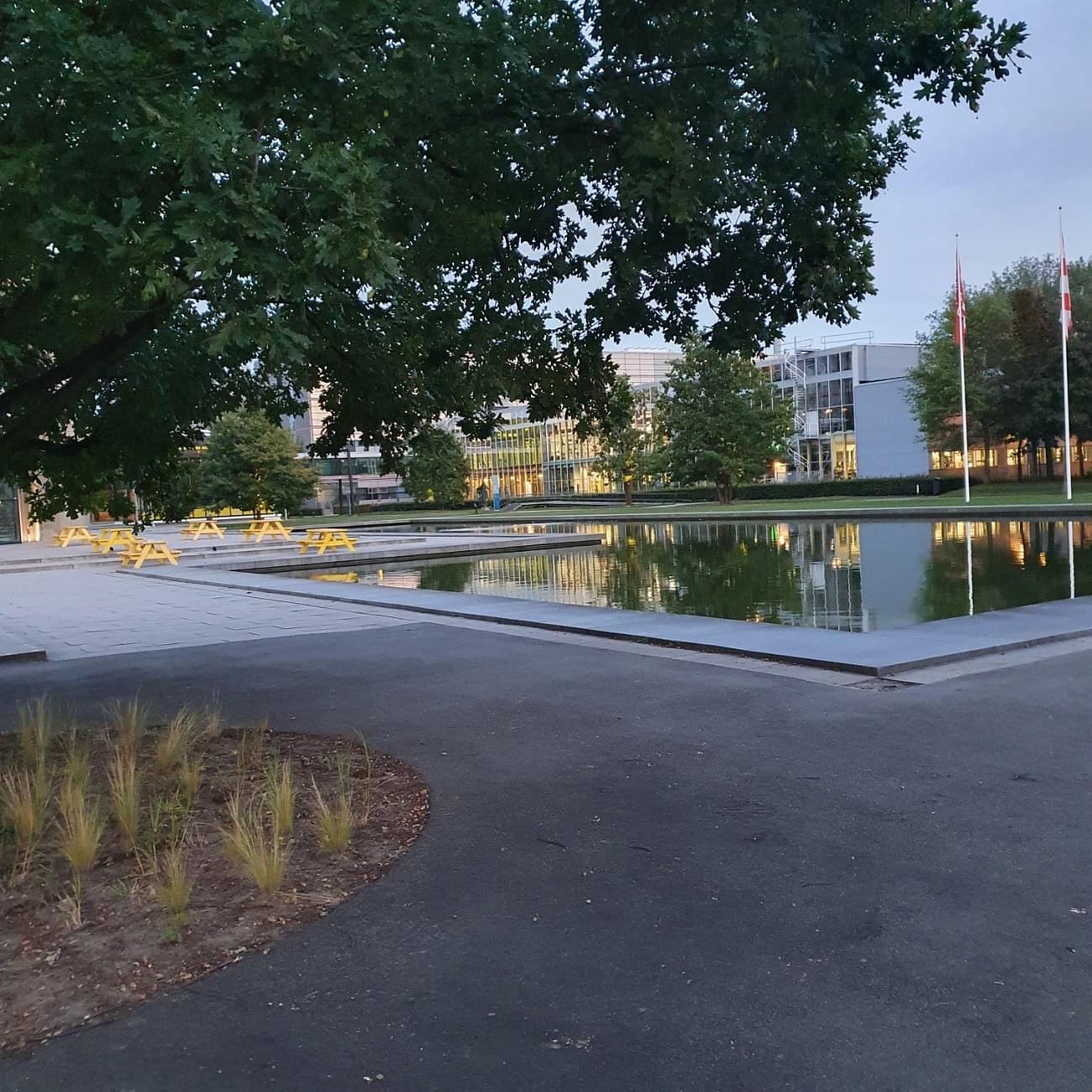
Likes
- Close proximity to high tech industries in Eindhoven so lots of internship and project opportunities
- High research oriented professors and faculty
- International community is very active and vibrant in the university
Dislikes
- Highly engineering focused university, lack of other disciplines is evident
- International tuition fees is very steep, compared to EU tuition fees
- Masters program have a tendency to get extended due to internship/thesis project administrative issues, which implies students have to pay extra fees for the extended period
Course Curriculum
- First year was mainly theoretical and the second year was practical with an internship and final thesis. Internship was for 3 months and the thesis was for about 7 months. The course curriculum keeps changing so check the website for details.
- Classes were between 9 and 5, depending on the workload for that quartile. Usually 3-5 hours of lectures per day followed by time for assignment work. Average class size was about 45-60, depending on course. About 25 Indians in a total of 80 students.
Fees
- Yearly Tuition fees: €16000
- Living Expenses: €12000
- First-year fees have to be paid upfront along with living expenses. Living expenses were given to us with a dutch bank account. Second-year fees can be paid in monthly instalments of €1600 per month.
- Monthly expenses can vary based on the individual. Back when I was studying, about 450€ for rent, 200€ for food and 100€ for other expenses. Now rents are higher and grocery costs are more, so I would assume about 1000 - 1200€ per month.
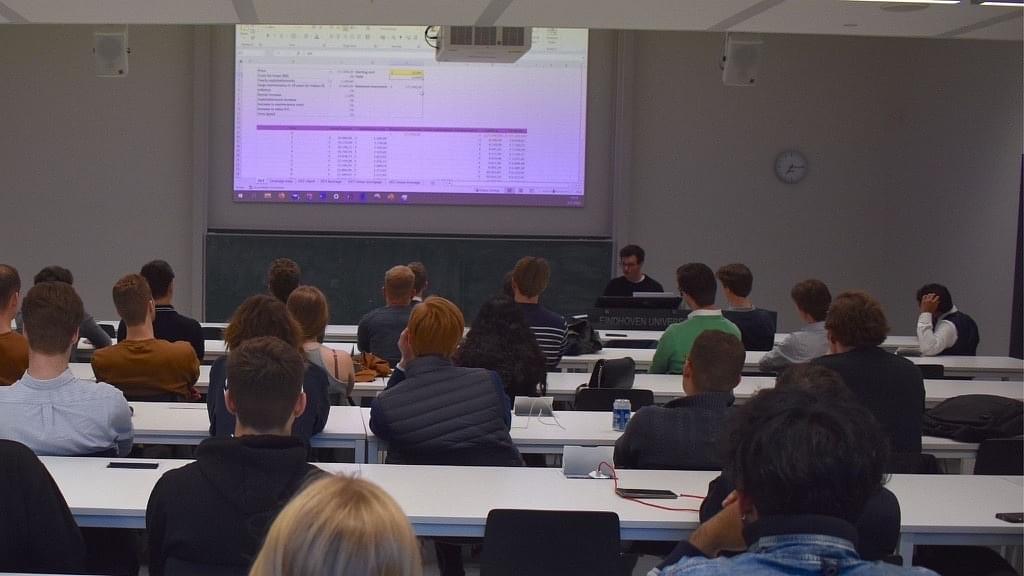
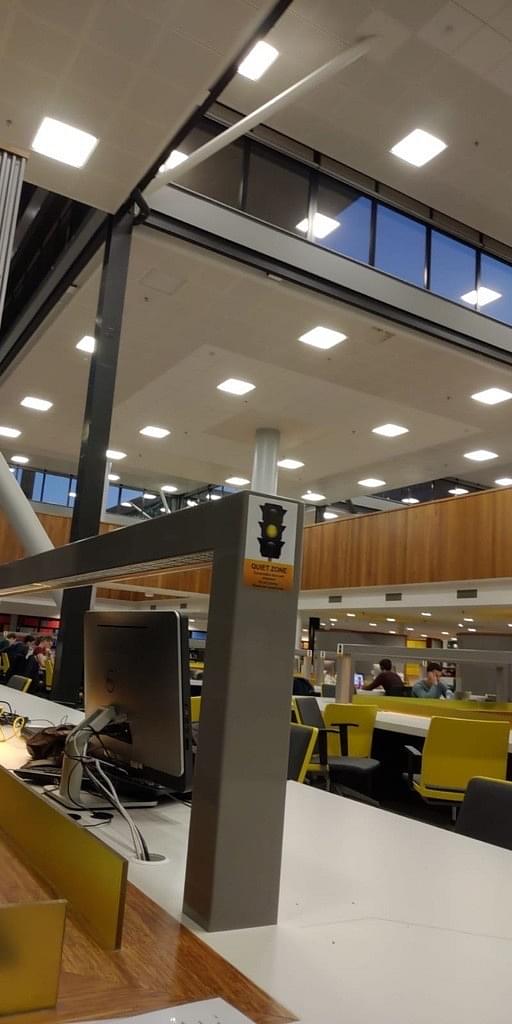
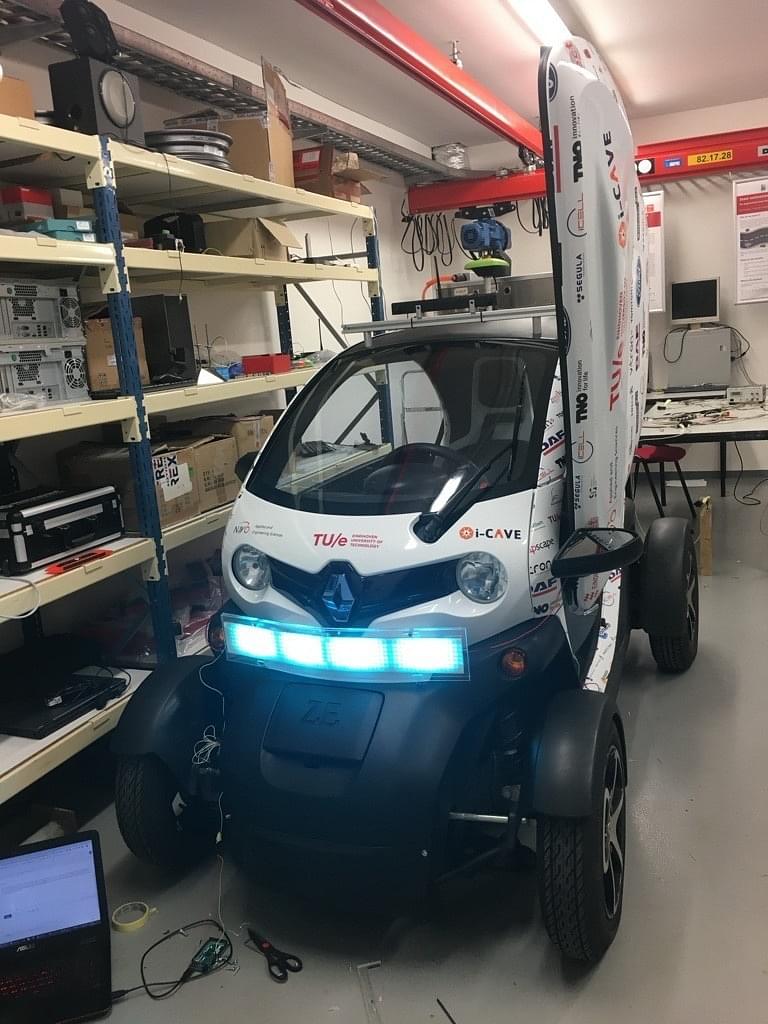
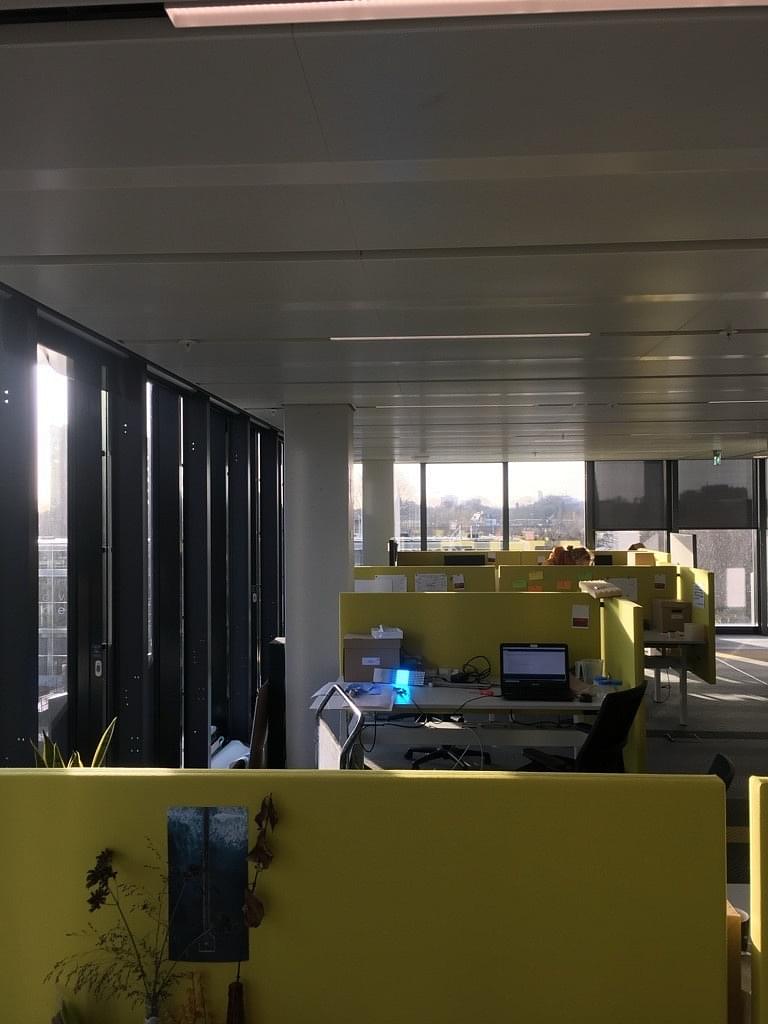
Likes
- Great international environment and diversity
- Well educated faculty from several countries
- World-class facilities when it came to machinery and equipment
Dislikes
- Complicated administrative processes
- Lack of flexibility and leniency
- No affordable cafetaria and restaurant available on campus, also closest grocery store was quite far to go in between during classes
Course Curriculum
- The difficulty in Electrical Engineering is quite high. For reference, our graduation rate within 3 years is a mere 12%. After a fourth year that rate goes up from 12 to 35%, which is still quite low. It is a good course that offers both theoretical and practical knowledge, as well as a lot of freedom to choose your electives.
- The negative aspects are definitely the rigorous examination requirements to pass each course. You can never get less than a 5/10 on an exam and every course must overall be at least a 5.5/10. The positive aspect is that project courses are taught quite well and teach students skills that they are otherwise uneducated about.
- A maximum of 2, 4-hour lectures/blocks a day. Approximately 3.5-4 full days of education
- Number of students enrolled in my programme was 300 per year.
- In my year there were only a handful of students in EE (there were obviously others in different courses), but that has risen quite a bit this year with over 20-30 joining.
Fees
- When I started, the tuition fees were approximately 11k euros per year. It increased gradually (the last tuition fees for one year I paid was 12.5k), so tuition was approximately still 35ish-K for the Bachelor's if you finish within 3 years. The university is exceptionally difficult so most students take a fourth, if not a fifth, year to finish their Bachelor's in which case you still need to pay the extra amount for the extra years. Due to budget cuts however the tuition fee rises to 18k per year for all new students (and old students will have transitional arrangements till 2027)
- The hostels are not included and accommodation must be found by the students themselves, and depending on the location as well as sharing/studio/facilities, it can range from 400 to 1200 euros per person. This is not considered cheap in the area but the housing crisis is quite bad.
- The fees charged for the first year are always a one-time amount and from the second year onwards, you can do it monthly/quarterly/semester-wise, etc., and the university did not have credit-based solutions.
- Everybody here usually travels by bike so transportation costs stay quite low unless you wish to explore other cities. Until you're 18 you actually have subsidised train transport, which is something all students make use of. My monthly expenses have been quite low since I cook for myself; excluding rent, one could easily survive on 200-350 euros a month here.
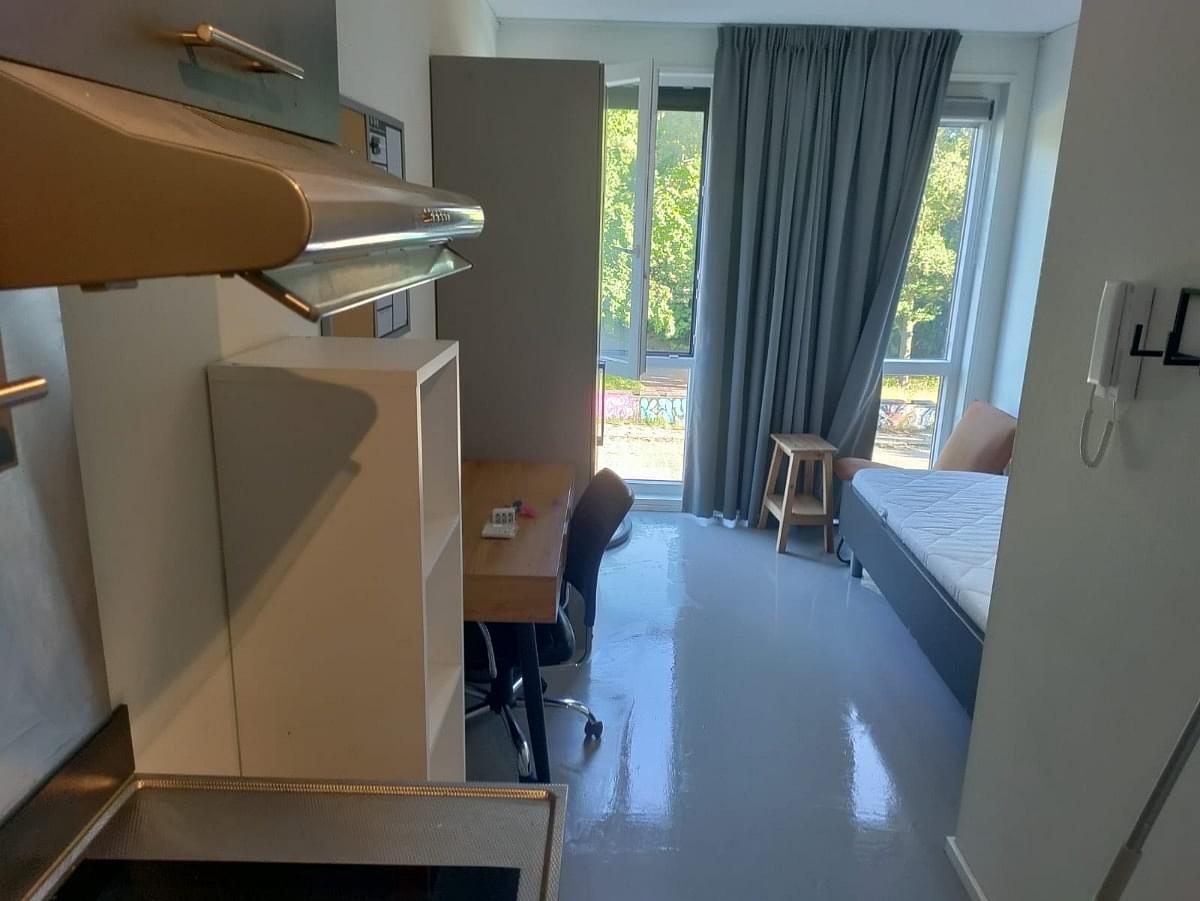
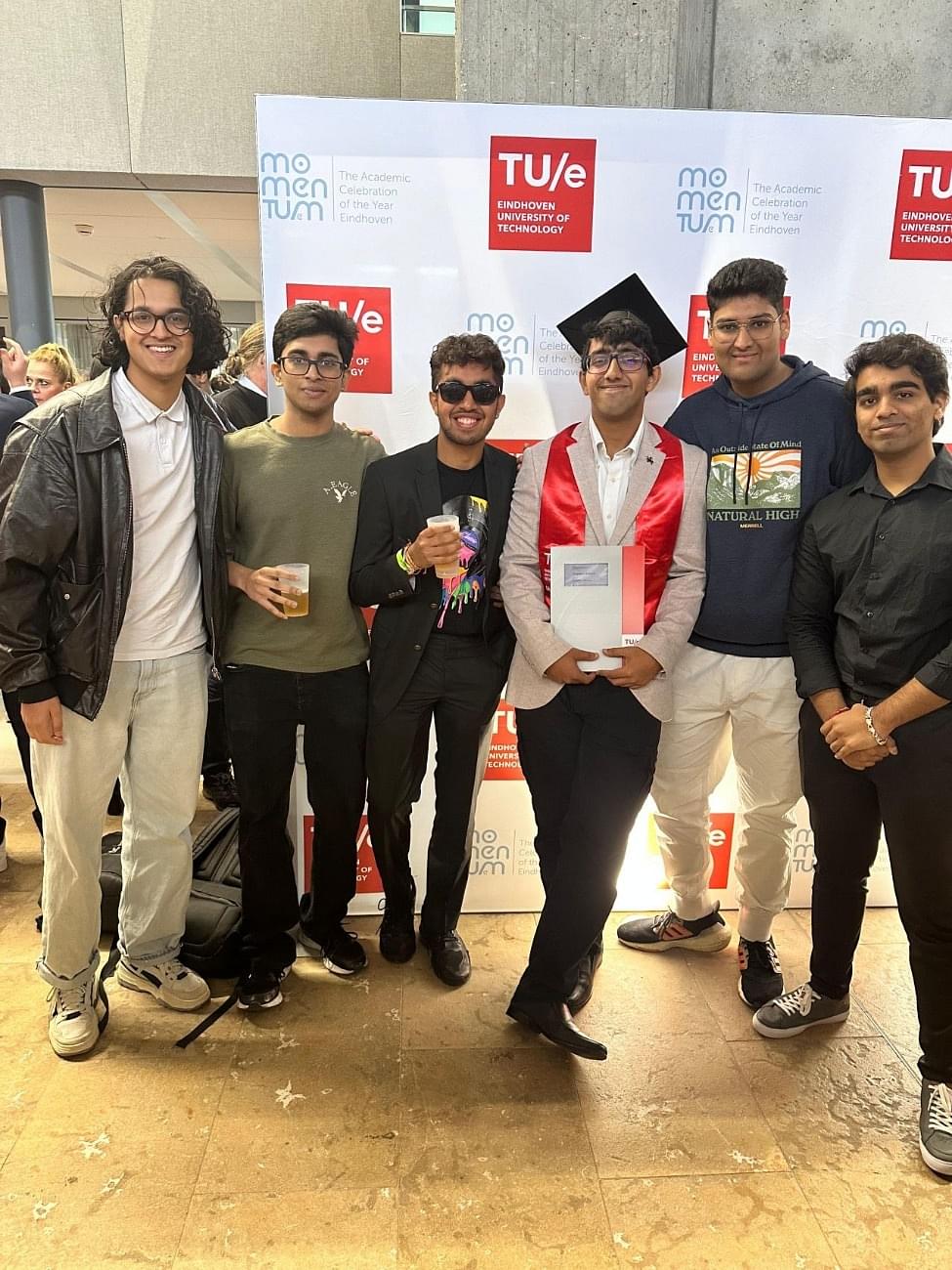
Likes
- Cultural diversity
- In vicinity of many companies and ASML headquarters
- Balance between research/academia and industry related course content
Dislikes
- Less chances of collaboration with other students for studies
- Some professors and courses are too demanding
- Some of the facilities in some departments are old (monitors, pc, etc.)
Course Curriculum
- For embedded systems program, the difficult level is very high and coursework is very demanding. It is a mix of both practical and theoretical curriculum.
- Maximum 2 classes a day and that also depends on how many courses one registers for a quarter. Each class is for 2 hours. There is also a separate practical session if the course has one.
- Around 40 students
- Around 8-10 Indian students
Fees
- TU/e increase the fees yearly by 1000-1500 euros for non-eu students. They take fees yearly and a lump sum amount for the first year. I paid a total of 18,500 euros as a guarantee fee which included 17,800 euros tuition fee and, 210 euros visa fee. The remaining amount was returned back to me. As a non-eu student, I also paid 11,500 euros as proof of financial means to prove that I can support my finances for first year. After admission, this full amount was returned back to me. For the second year, students have the option of paying lumpsum amount or a monthly debit for 10 months.
- The tuition fee was 19,300 euros. My monthly expenses include 150-200 euros groceries (food, drinks, etc.), 100 euros miscellaneous expenses (you travel with or friends), around 600 euros rent if it is a student housing but if not then 900-1000 euros. Students above 23 years get a subsidy from the government as housing allowance. 60 euros insurance, 10 euros mobile plan. I have a bicycle which is kind of unsaid rule that one should own a second hand bike so travelling expenses ae not applicable to me. But train and buses are there if required.
 - Akhilesh Aralikatti.jpeg)
 - Akhilesh Aralikatti.jpeg)
 - Akhilesh Aralikatti.jpeg)
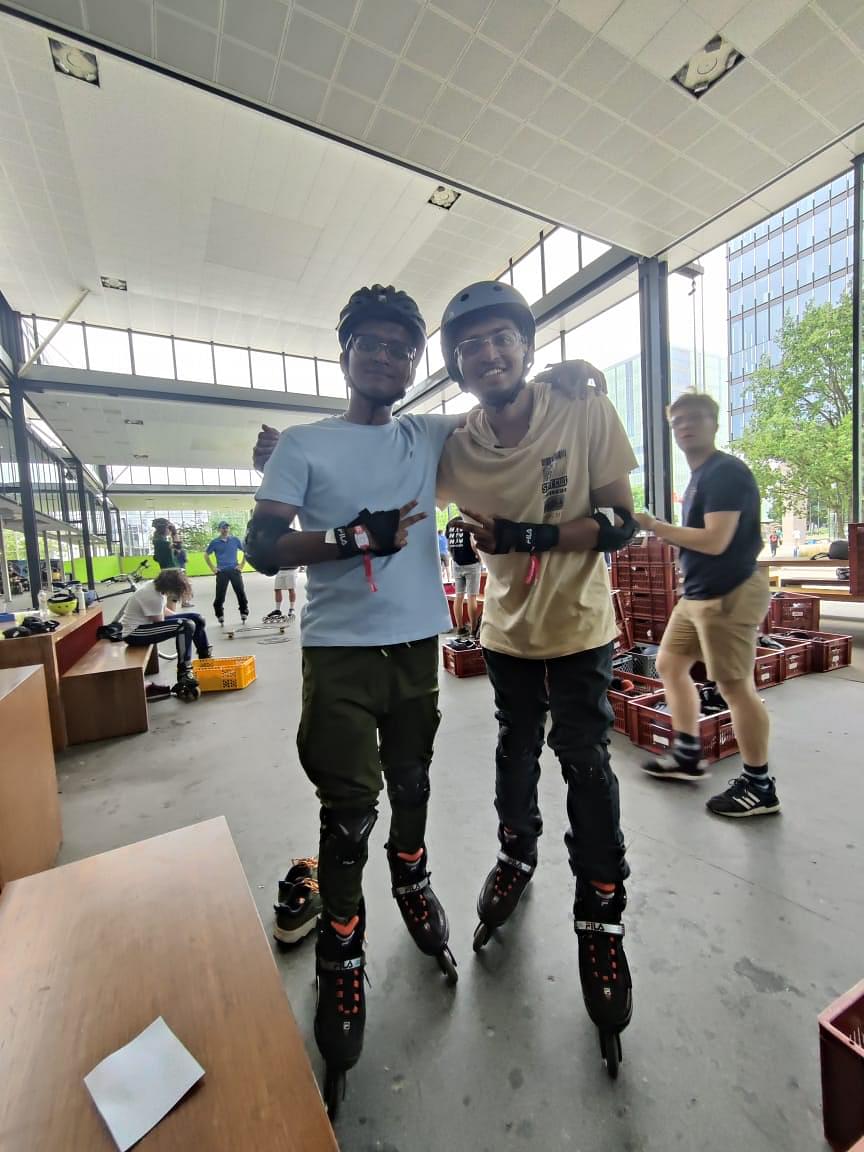
Likes
- Supporting faculty, you can ask them about literally anything even how to get best groceries.
- State of the art facilities like testing labs available.
- Innovation labs, you can ask for a model of your prototype 3d printed for free.
Dislikes
- Didn't feel at home.
- No sense of belonging.
- No placements, but companies pick students based on if they worked there in the internship.
Course Curriculum
- The course was difficult at times. Usually it was less when to do it and more like how to do it. It was completely assignment based and you were graded based on that.
- The average number is more than 100 and there were about 15 Indians in my class. It depends on what course you take. Somedays, you have 3 and somedays none. Subjects have their slots and while picking make sure no two subjects have the same slot.AC
Fees
- 16,500 euros per year tution fees. 10,500 euros should be there atleast for one year. Both should be wired to the university account in order to show that you are capable of funding your studies.
- Fees is charged yearly. You can pay it monthly too but that is not recommended. The hostel costs a minimum of 700 euros per month and a minimum of 100 euros for groceries.
Likes
- Very good industry links in the country and europe
- Superb infrastructure in terms of classrooms and sports facilities (best in the country)
- Great support from the university, in terms of monetary terms to open a startup or a student team in the country
Dislikes
- Studies are unnecessarily tough, especially for international students who did their bachelors elsewhere, very difficult to cope up.
- Various courses which are taught are very specific to the university's research and basically useless in terms of broader application.
- Quarter system is very hectic, in every 2 months you are required to write exams.
Course Curriculum
- The difficulty level is 9.5/10. It is very mixed; some courses are chill while others are so theoretical that it makes you cry from your heart just to pass it. They are very serious and organised in everything, so you need to be professional with everyone; if you take shortcuts, it won't work.
- In my course, its mostly negative due to the mandatory courses and some illogical rules that we can't do both internships and theses outside the university while they allow other course students to do that.
- Classes are very much dependent on the course, but it won't exceed 2 classes of 2 hours each per week.
- The average number also depends on the course and can range from 10 to 300.
It is fairly low Indian students in my branch, about 7%.
Fees
-
It is a yearly fee for the first year, which was 17800 Euros in 2023
and then the next year you have the option of either paying it yearly or quarterly and the fees was 19300 euros in 2024
Please also note that the tuition fee is increasing every year. - The monthly expense is max ~1000 euros
rent = 400-600 euros
food: 150-300 euros
miscellaneous-> 150 euros - The good part is that transport is your bike, which costs you nothing.
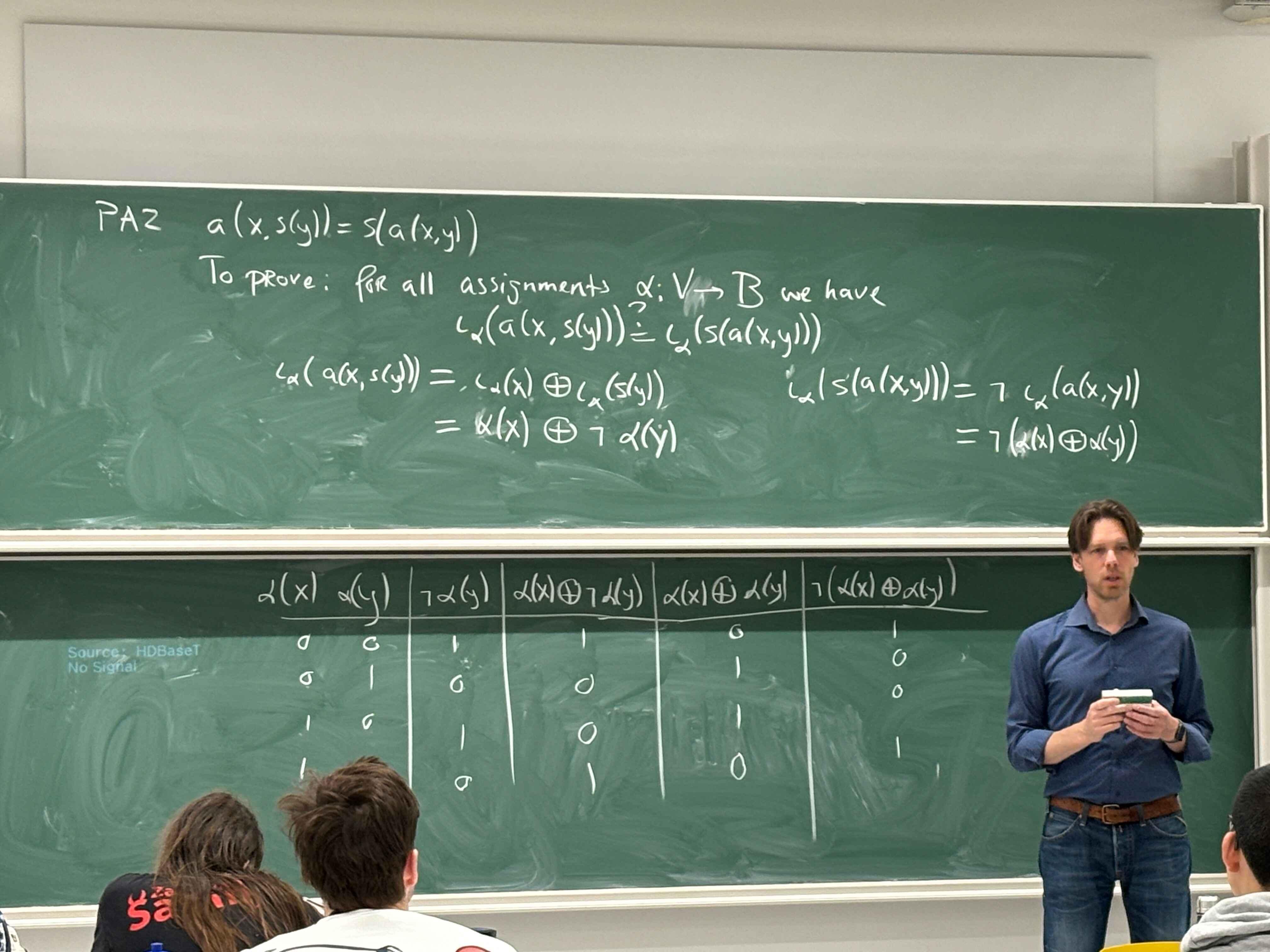




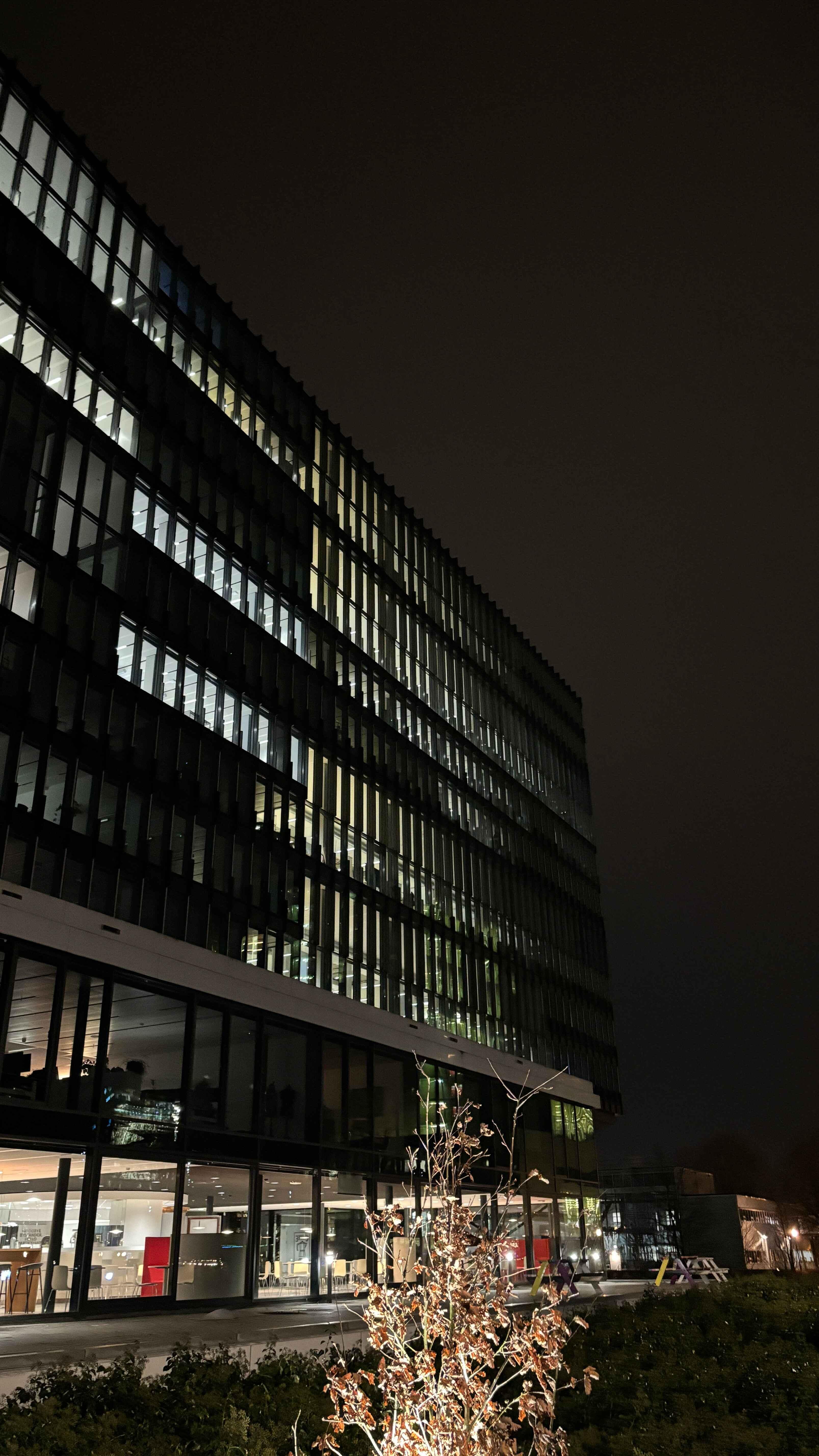






Comments